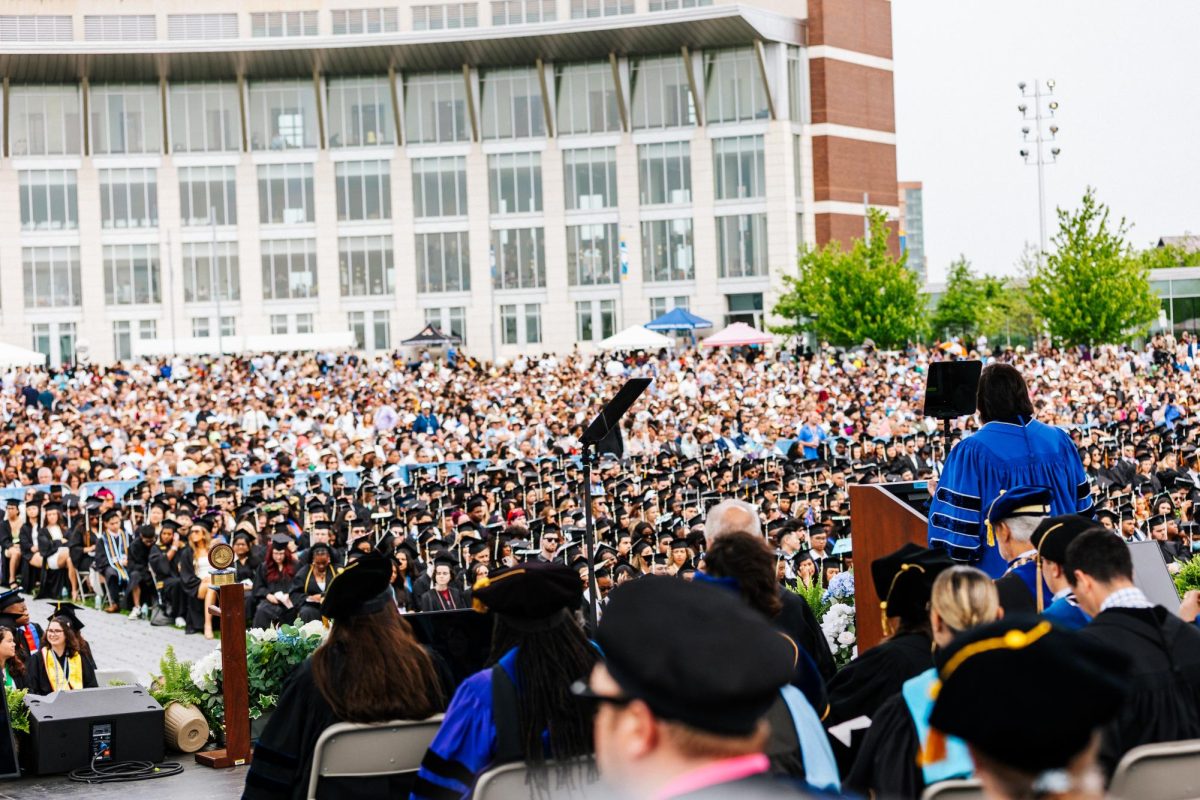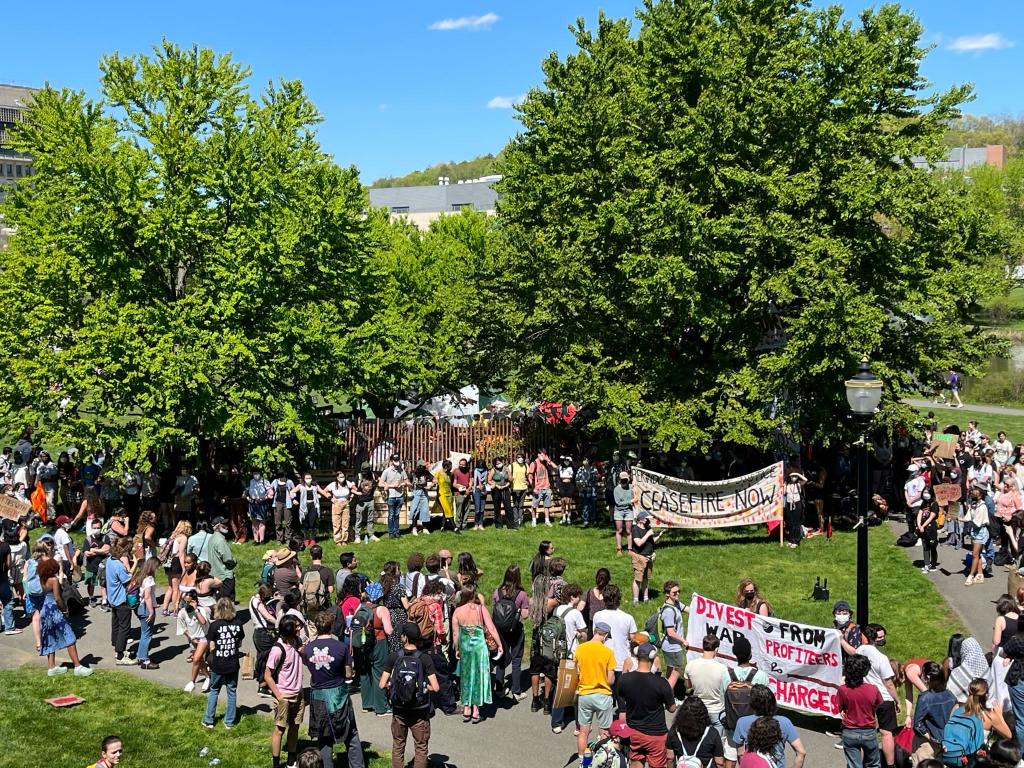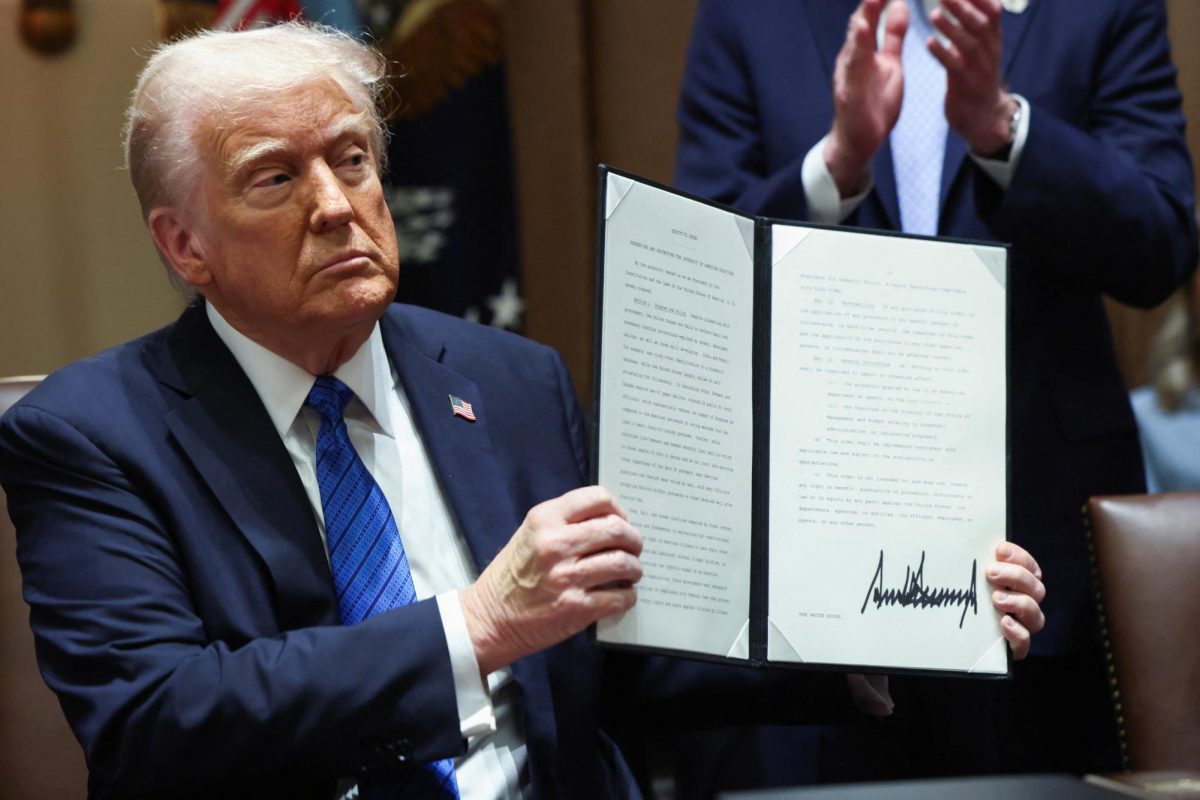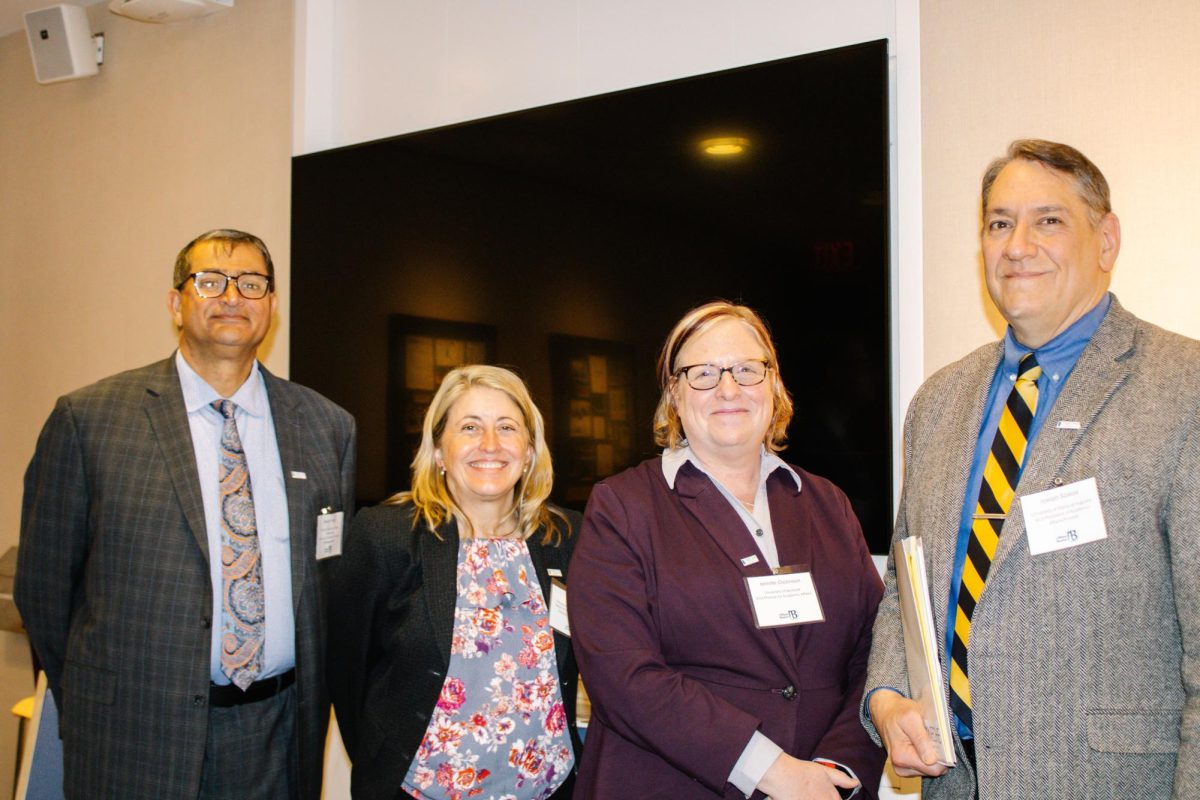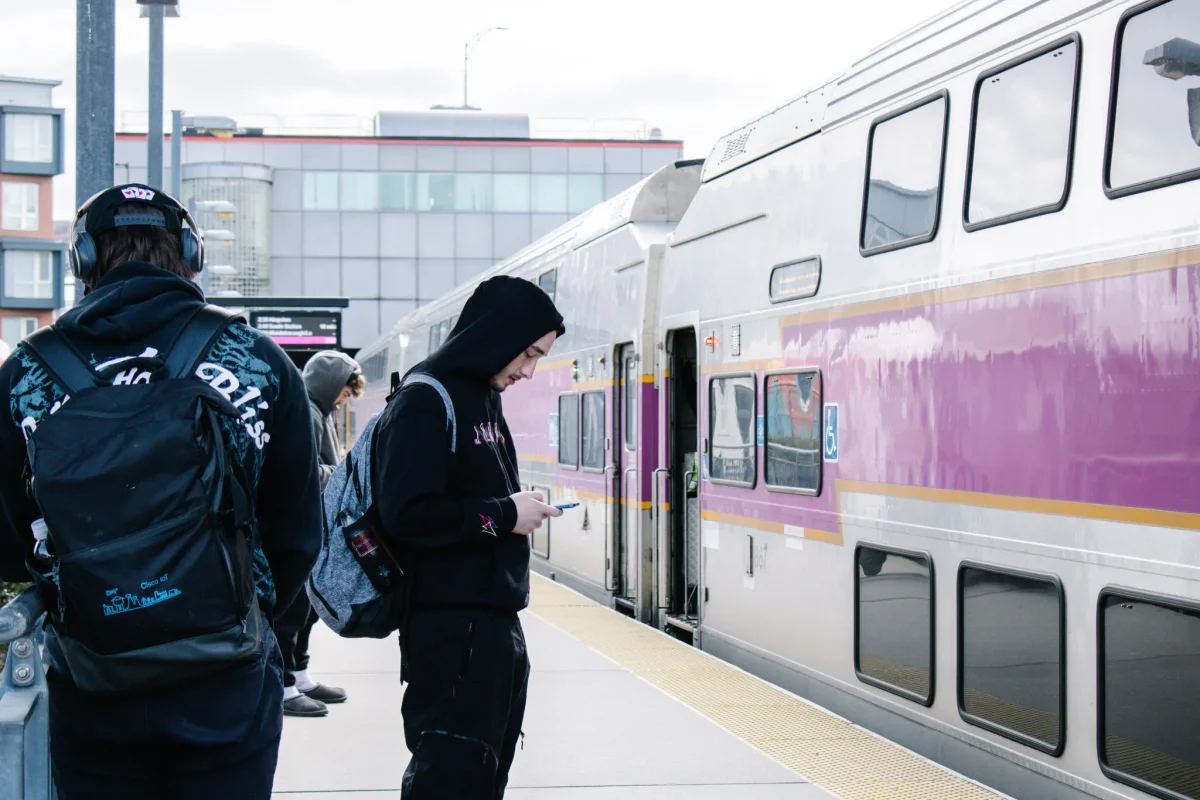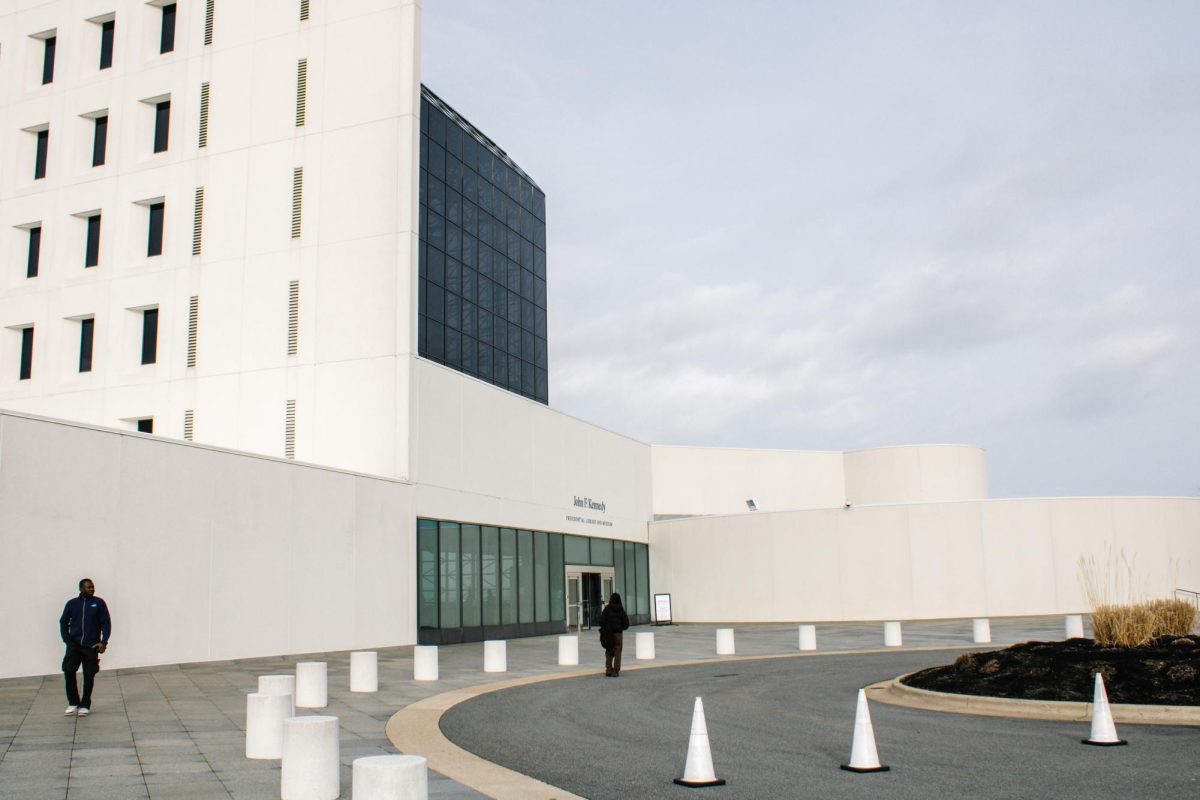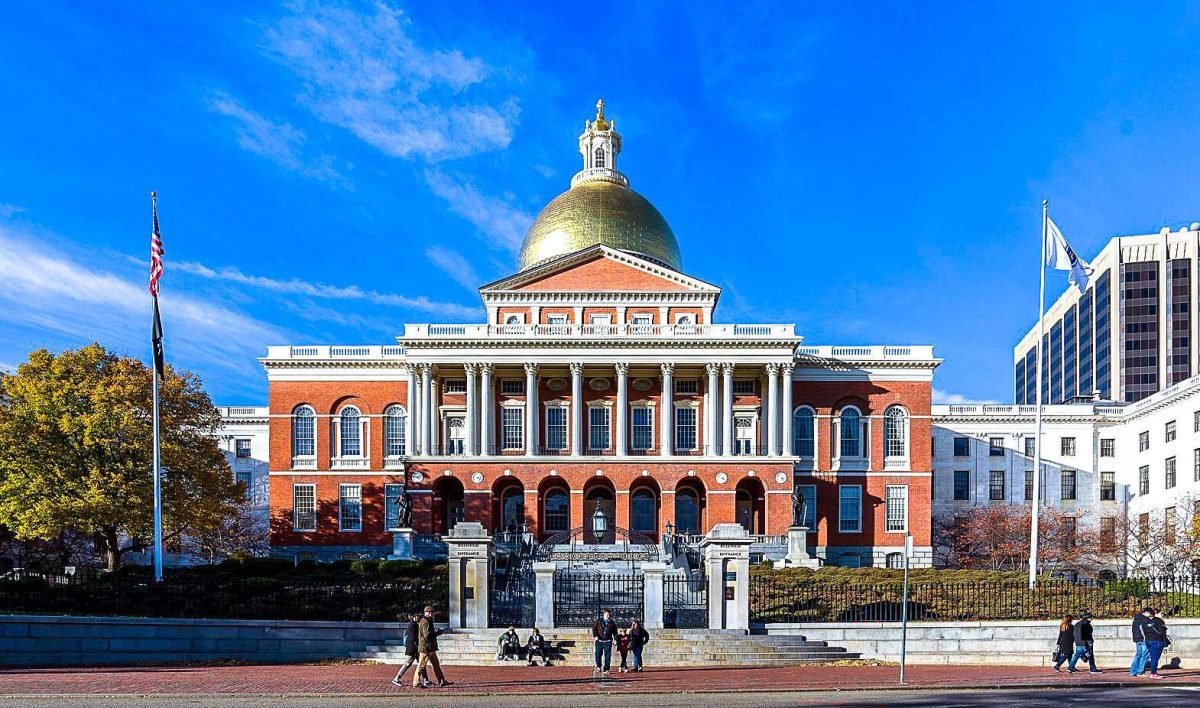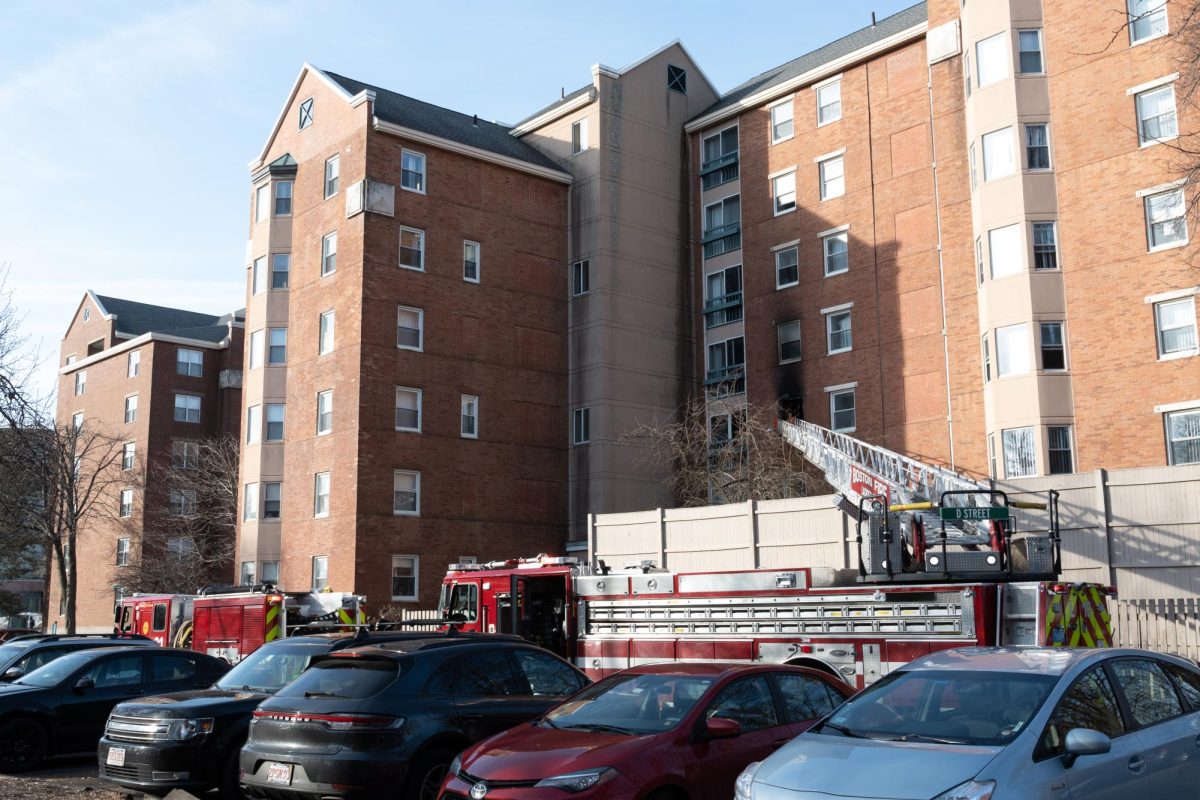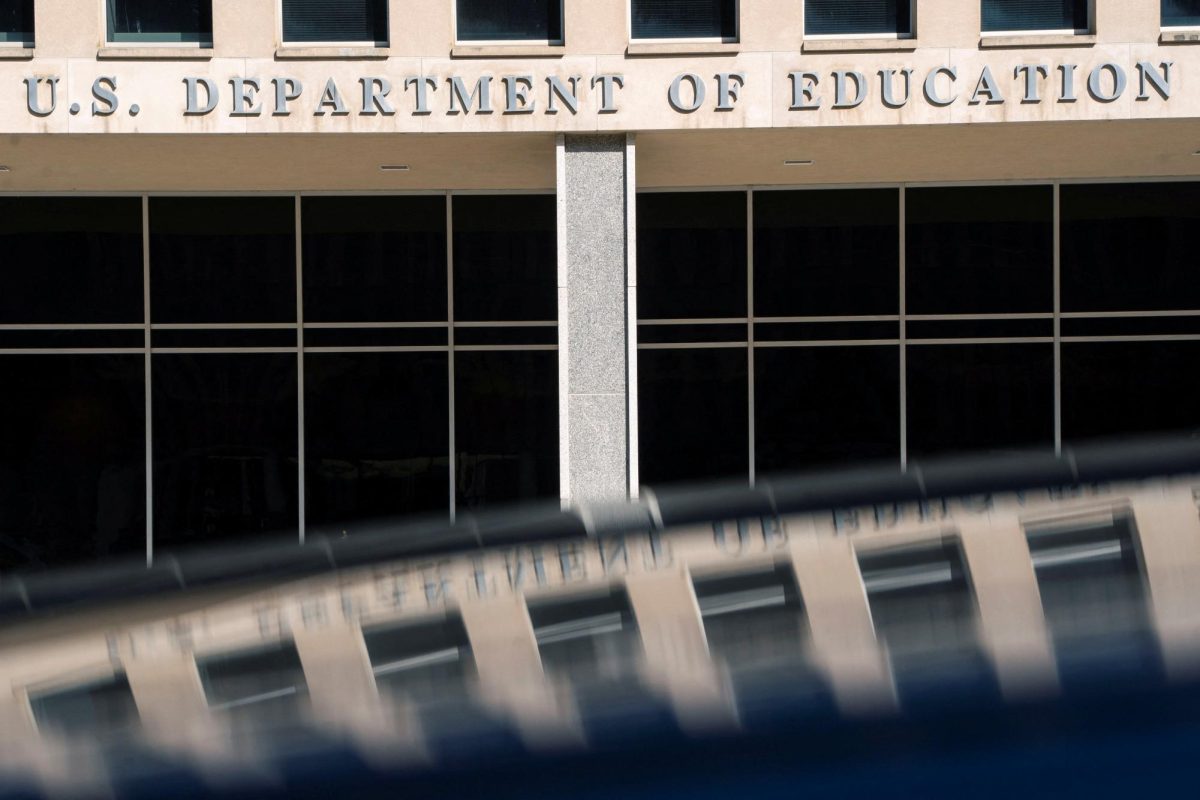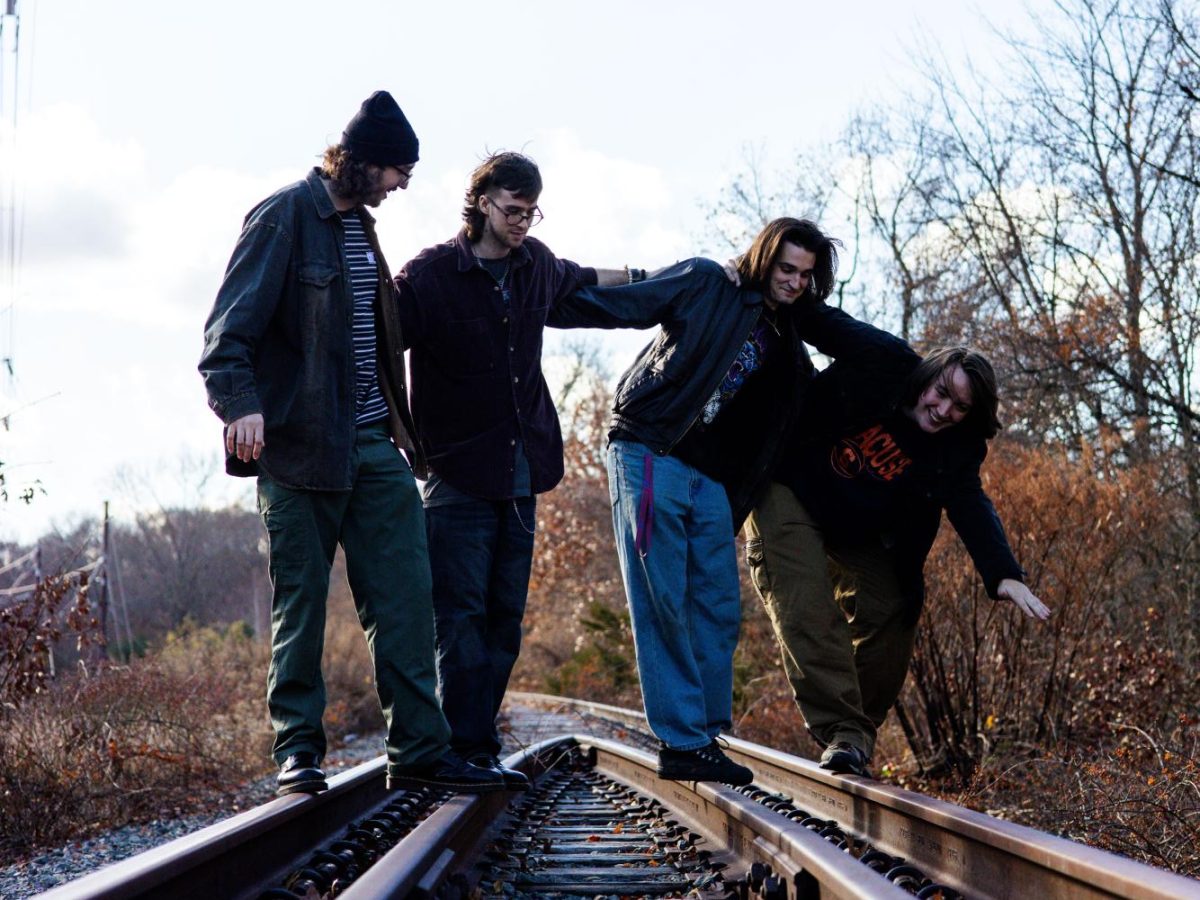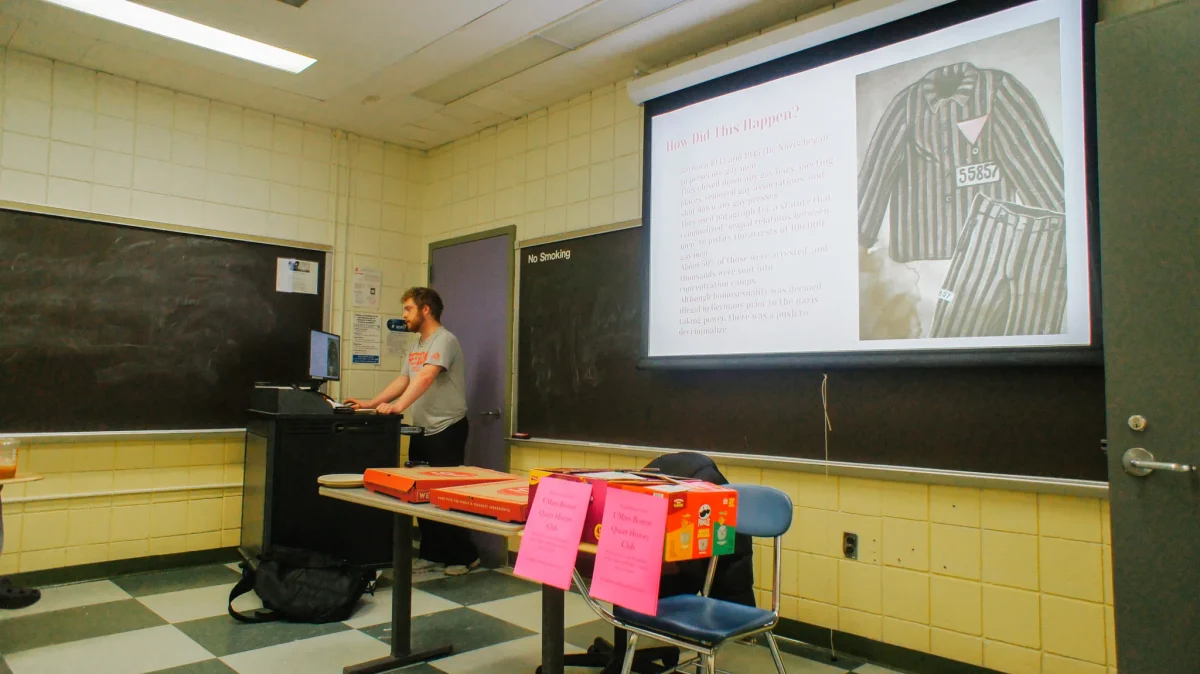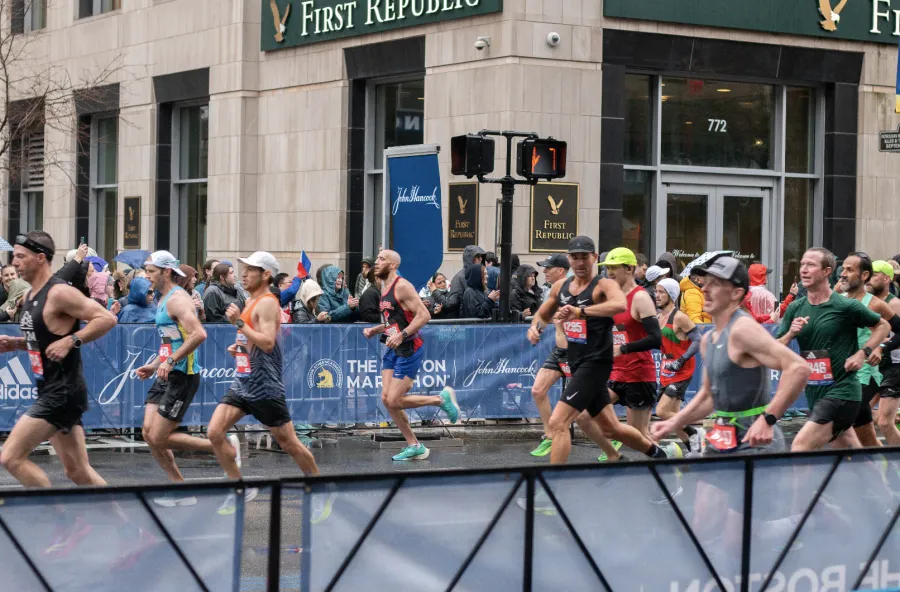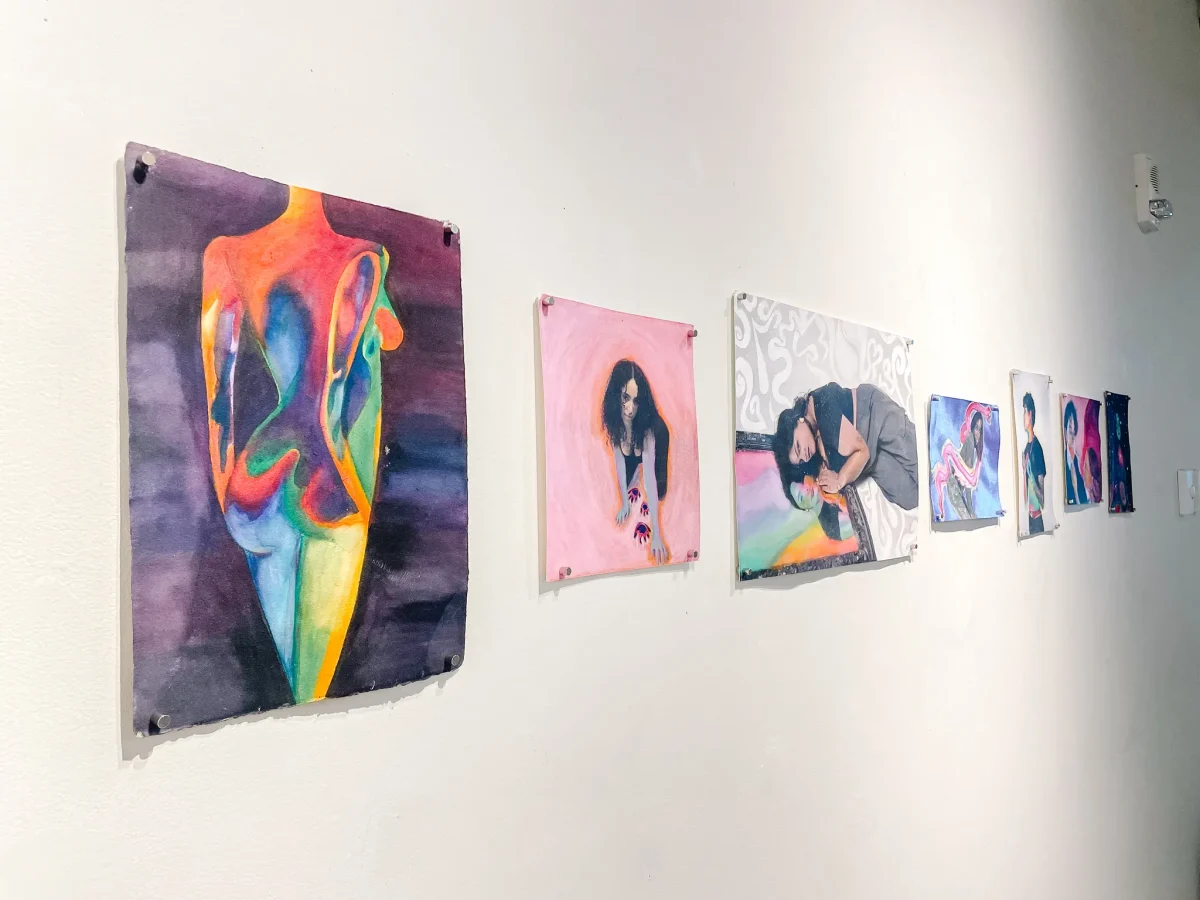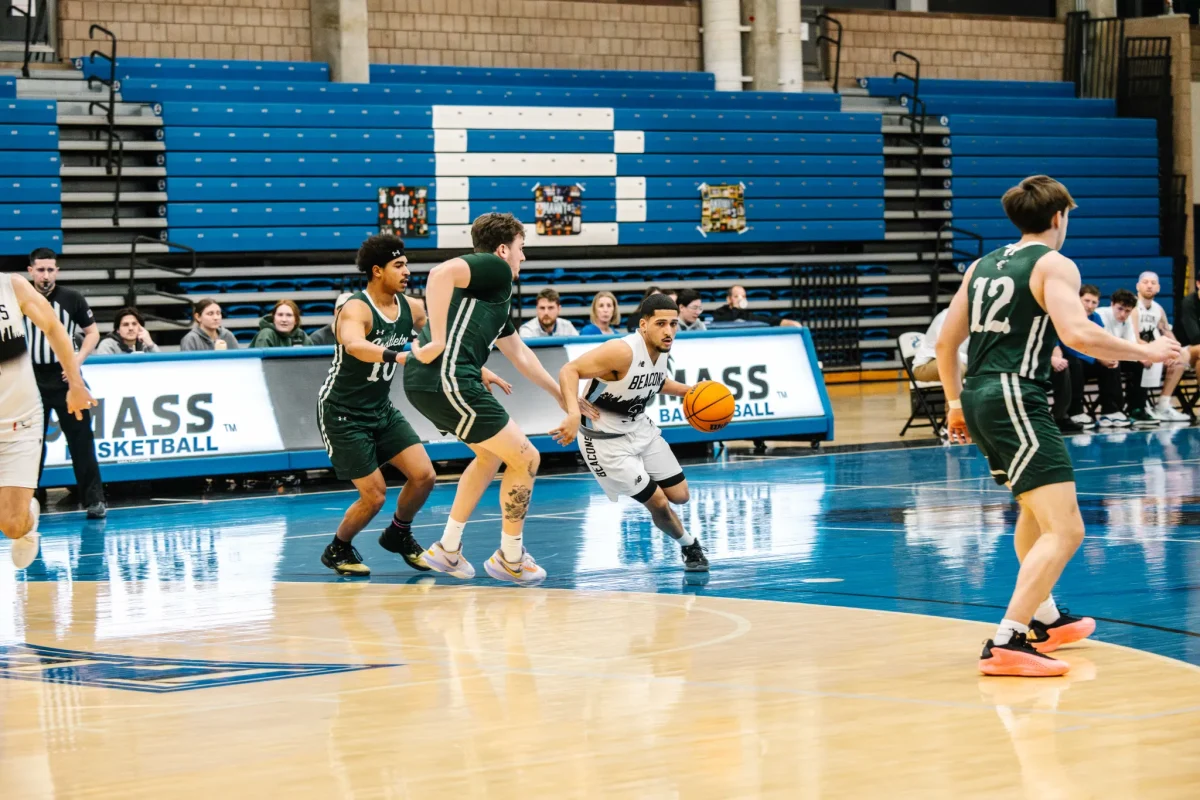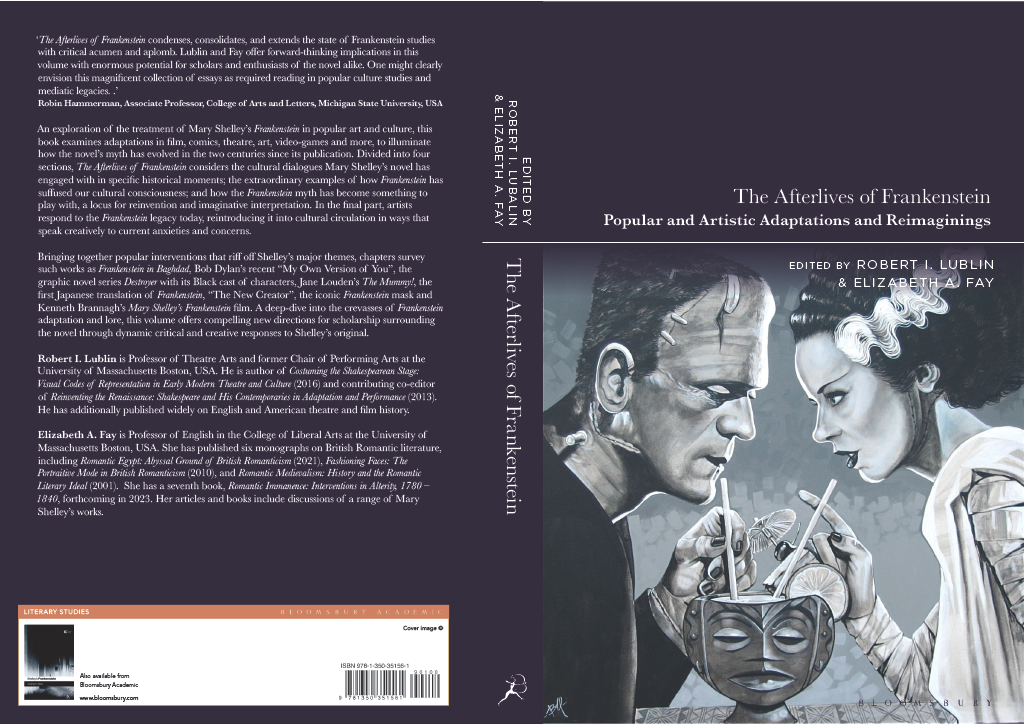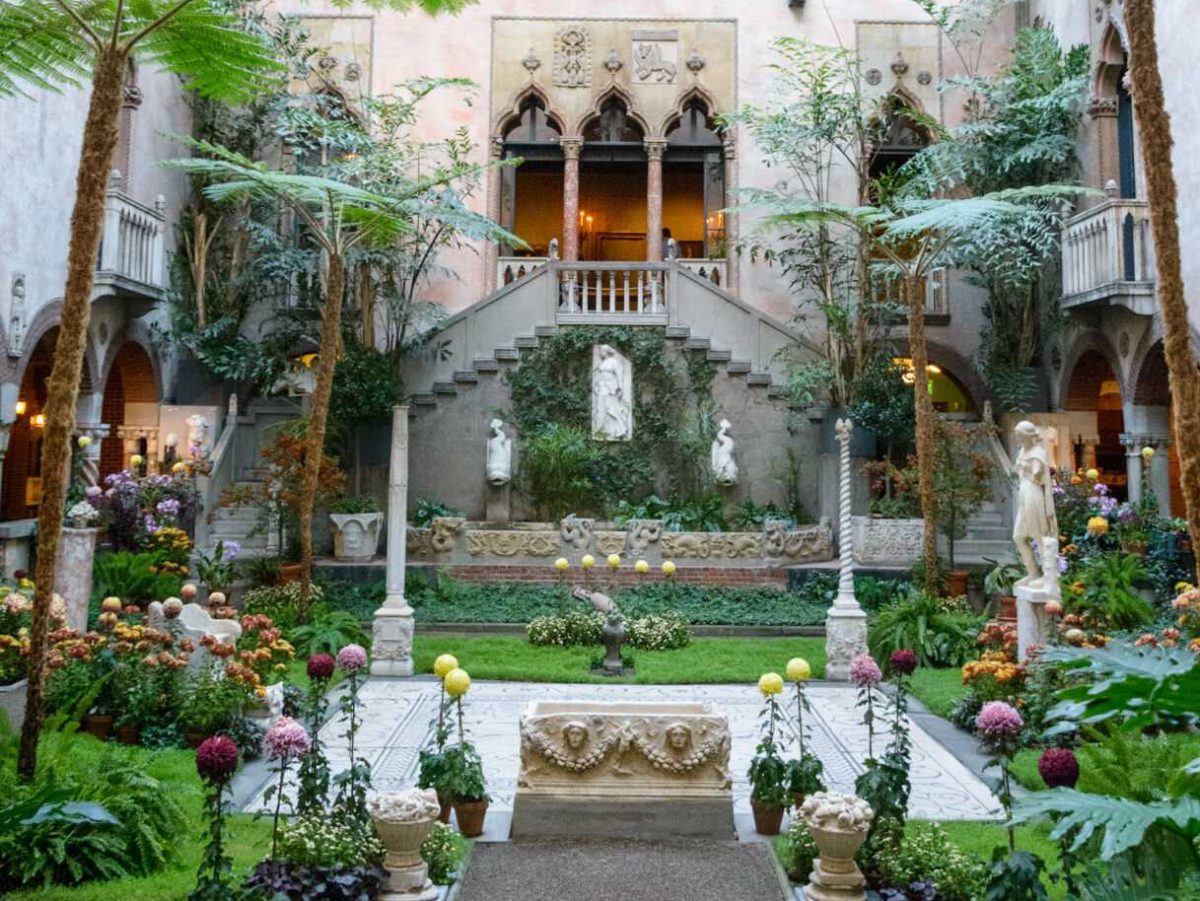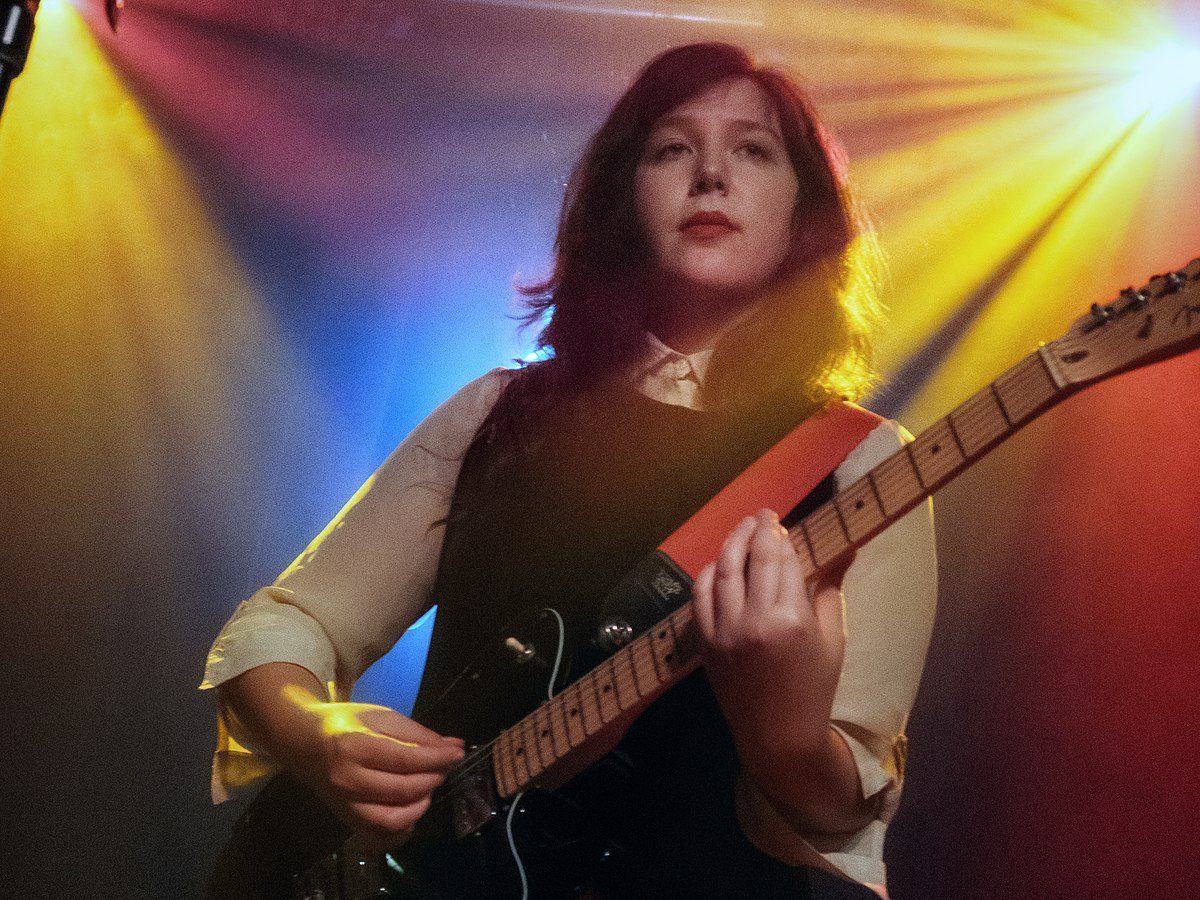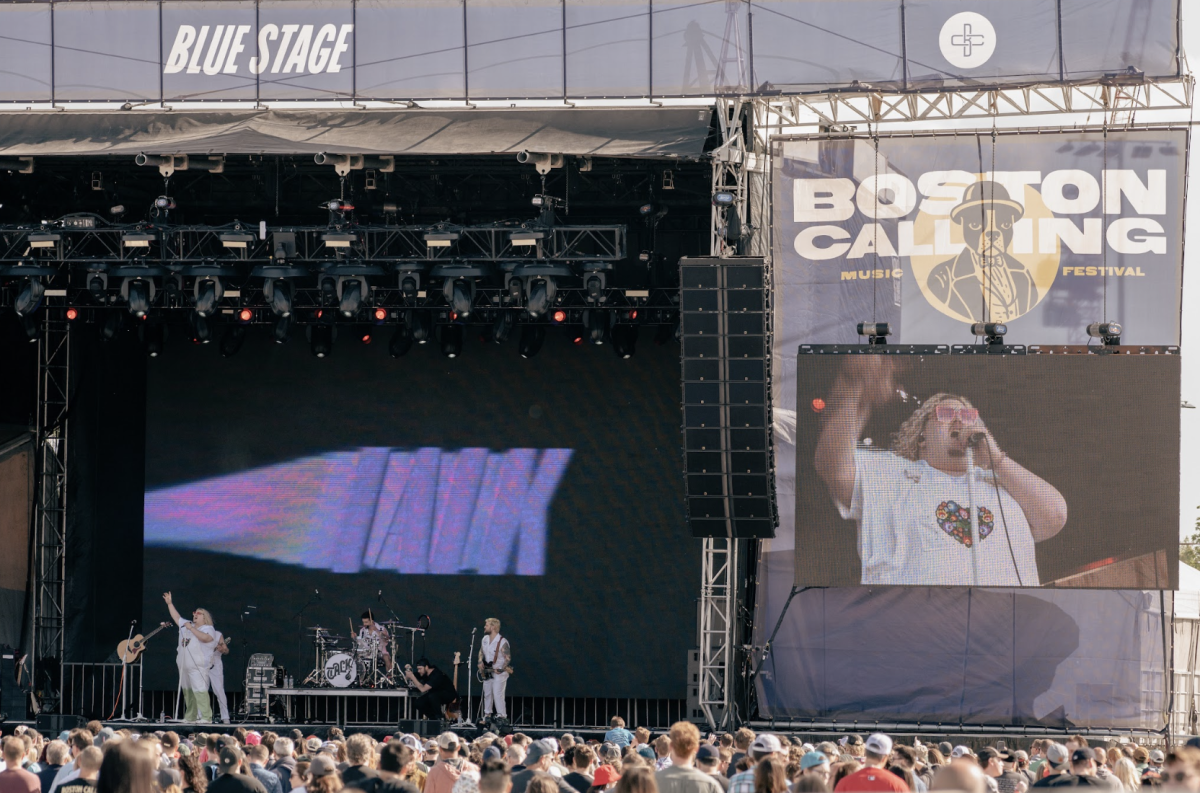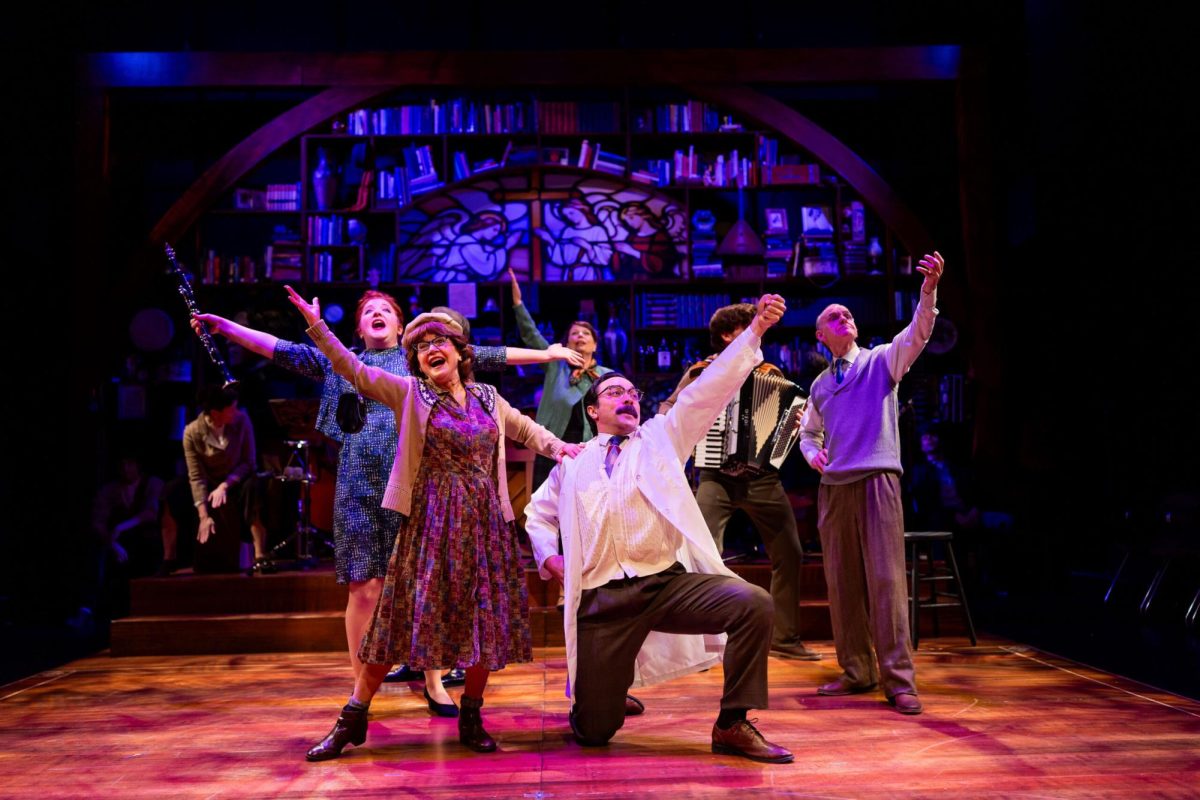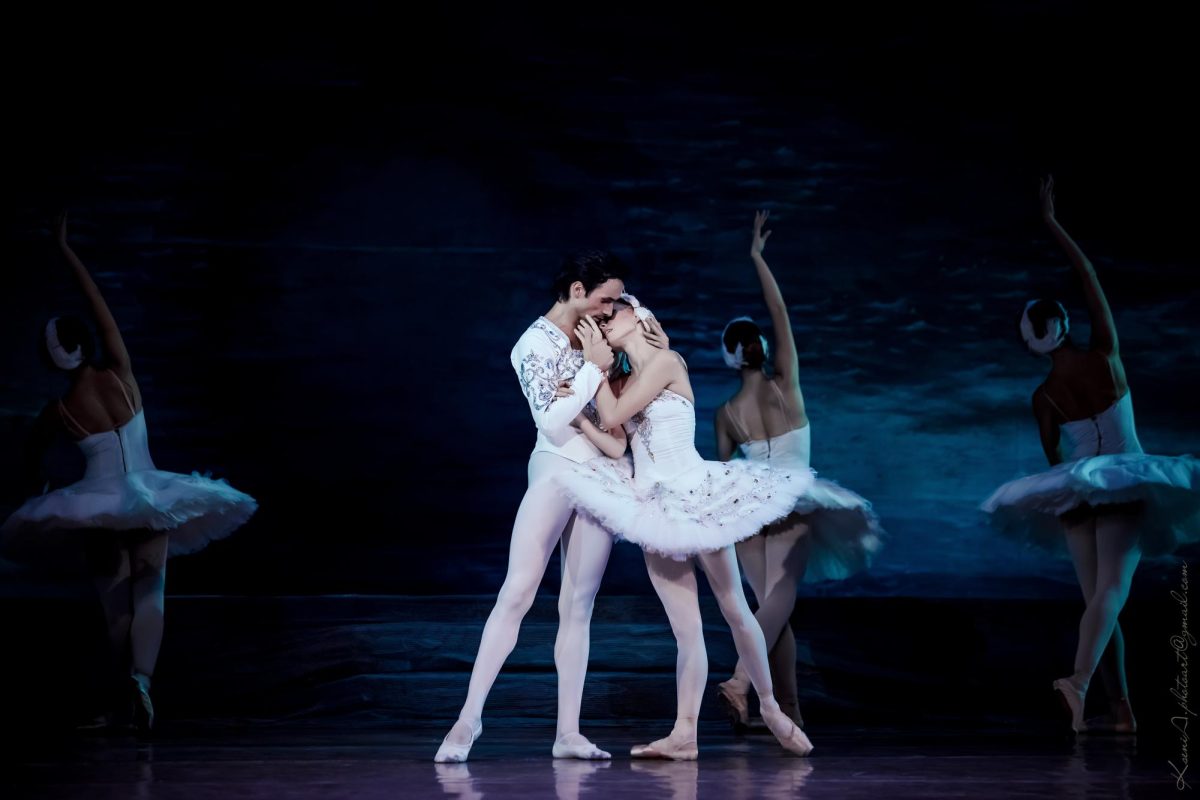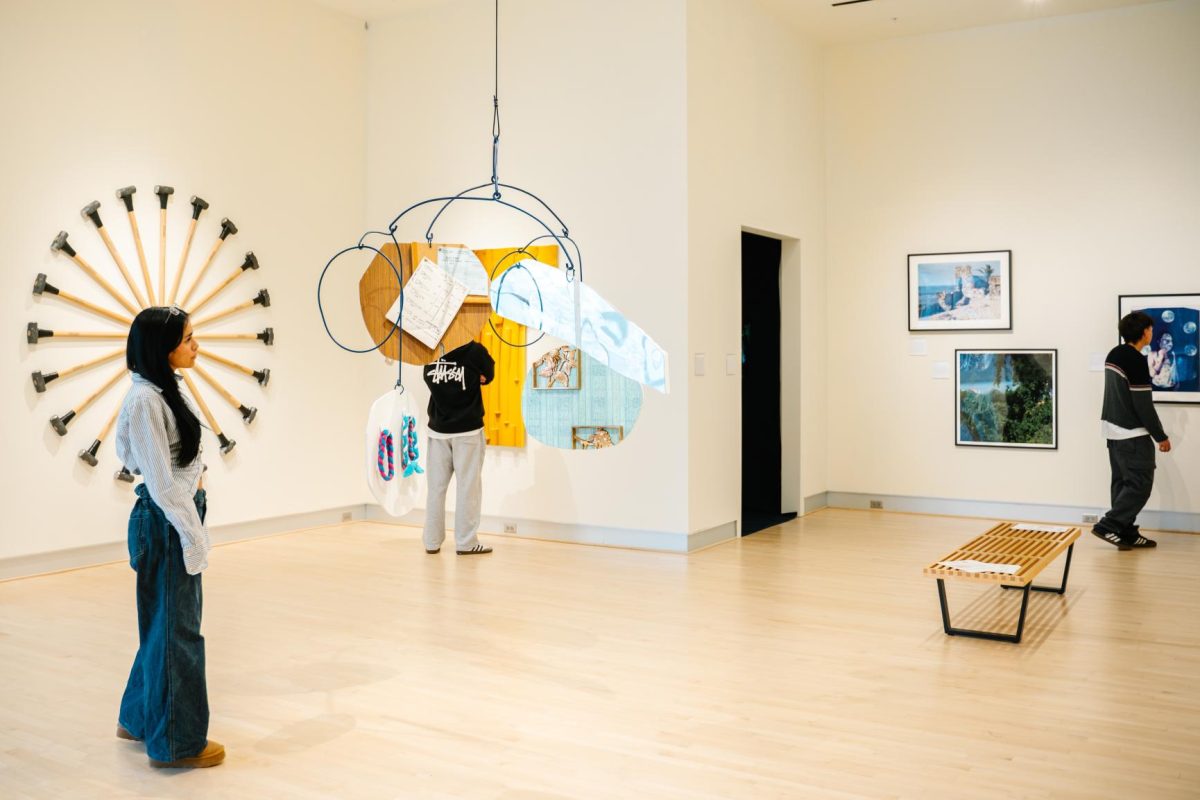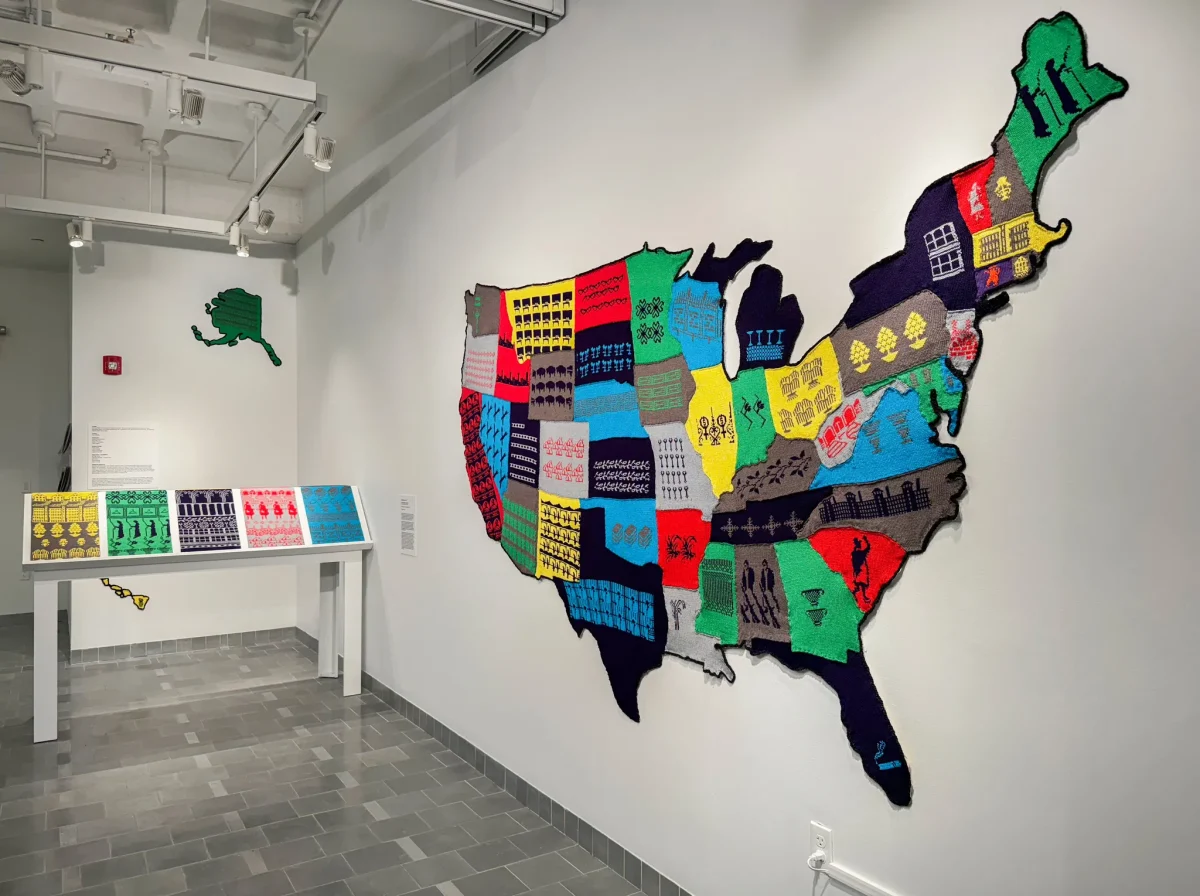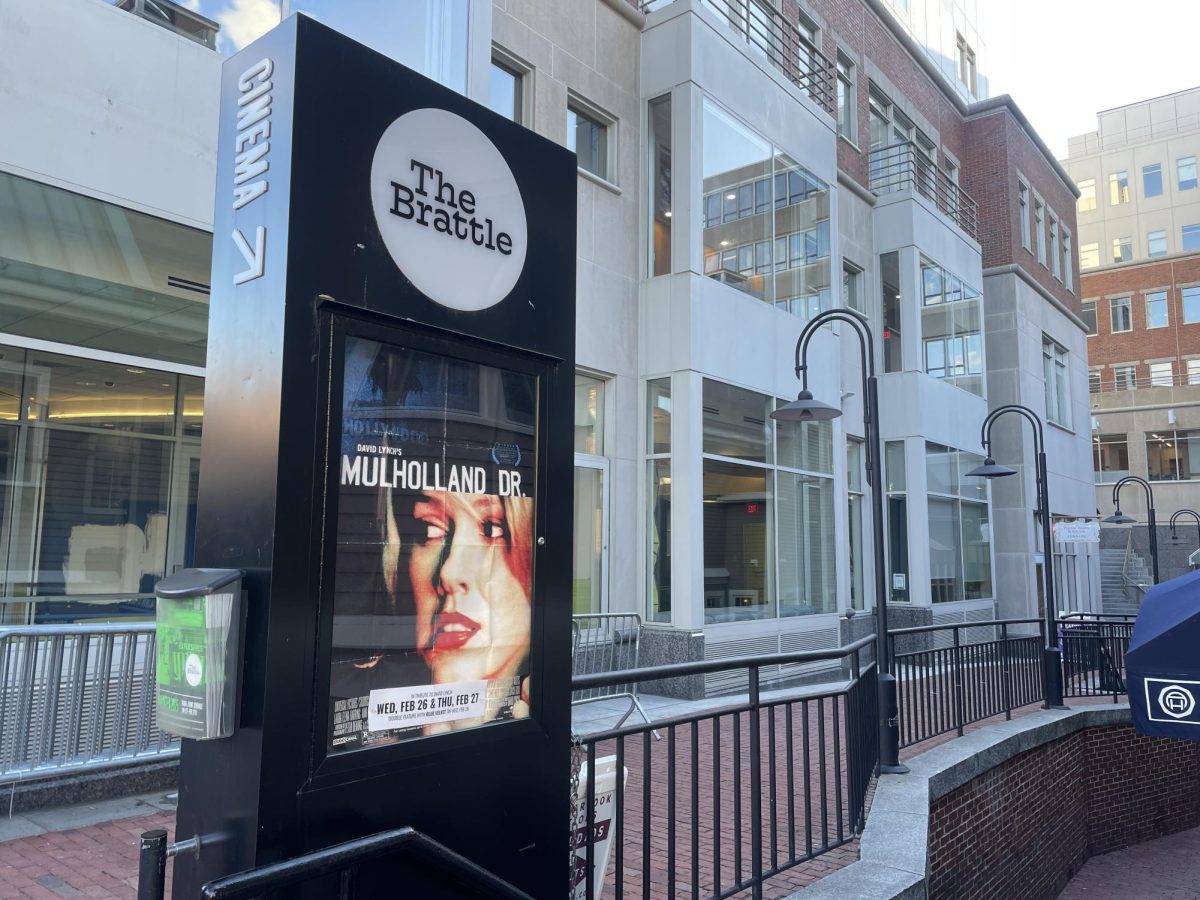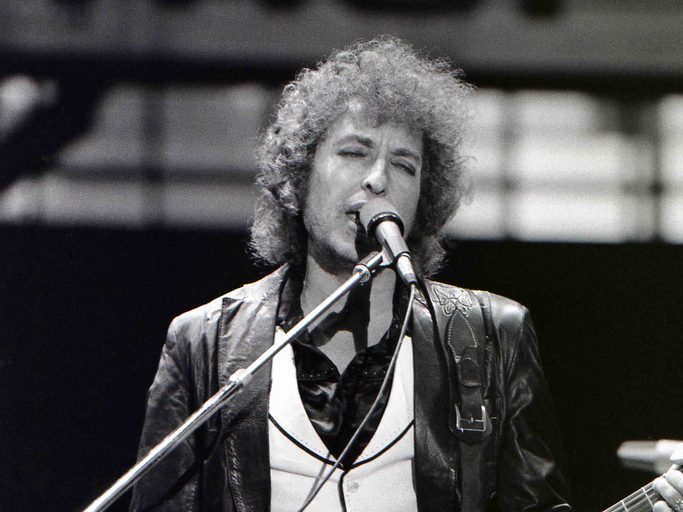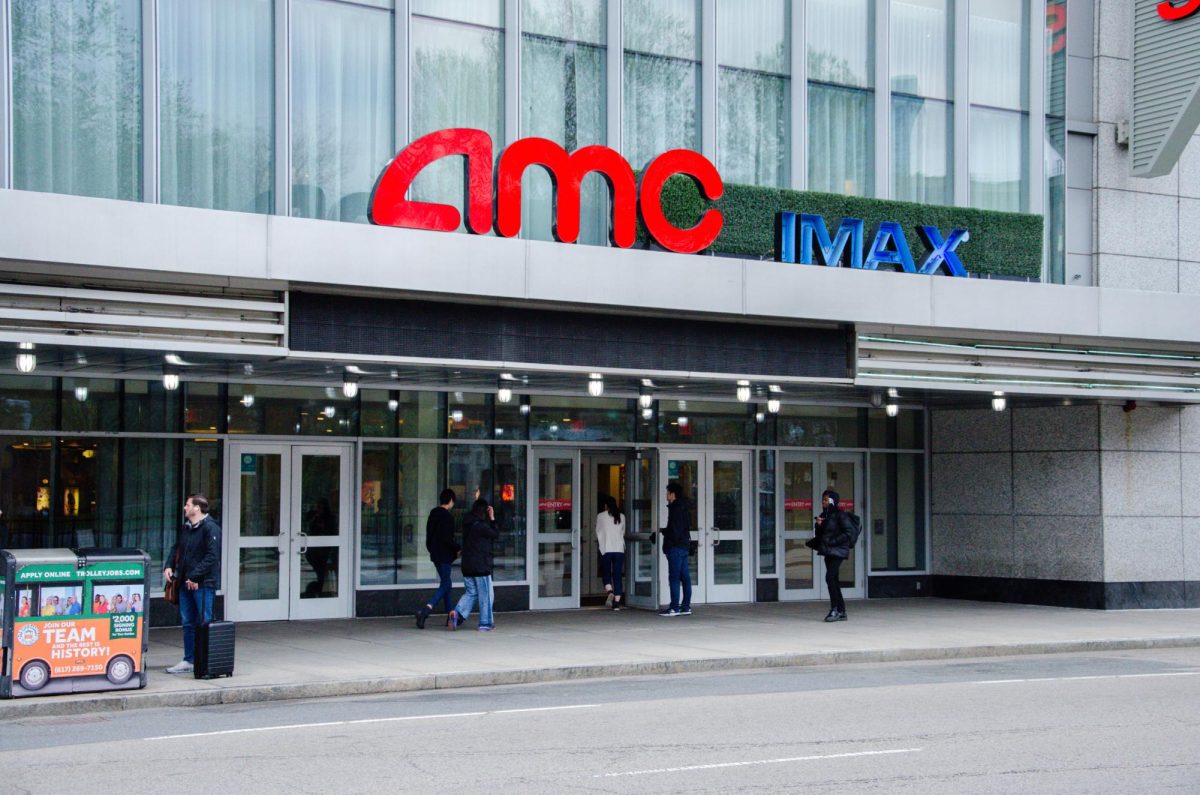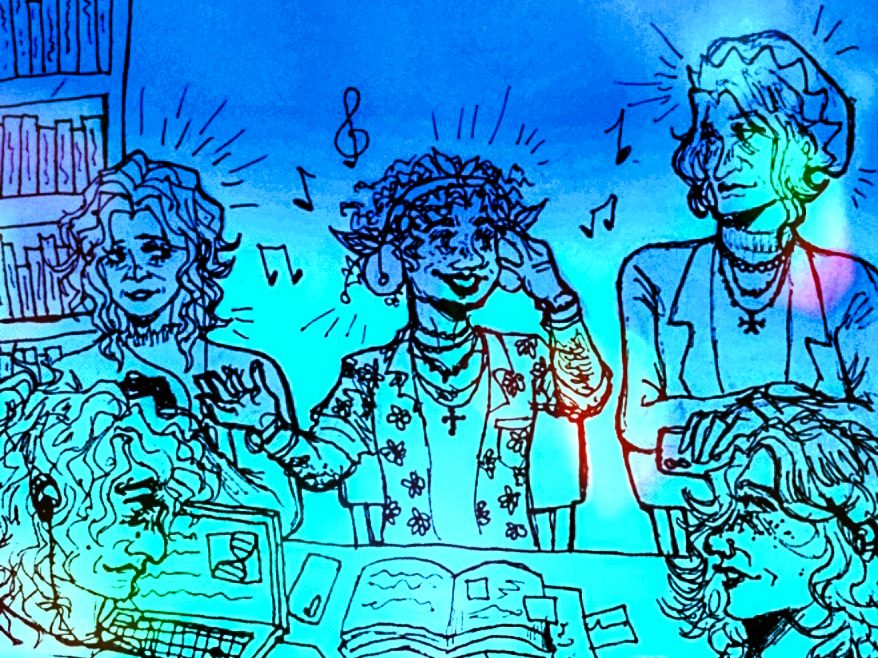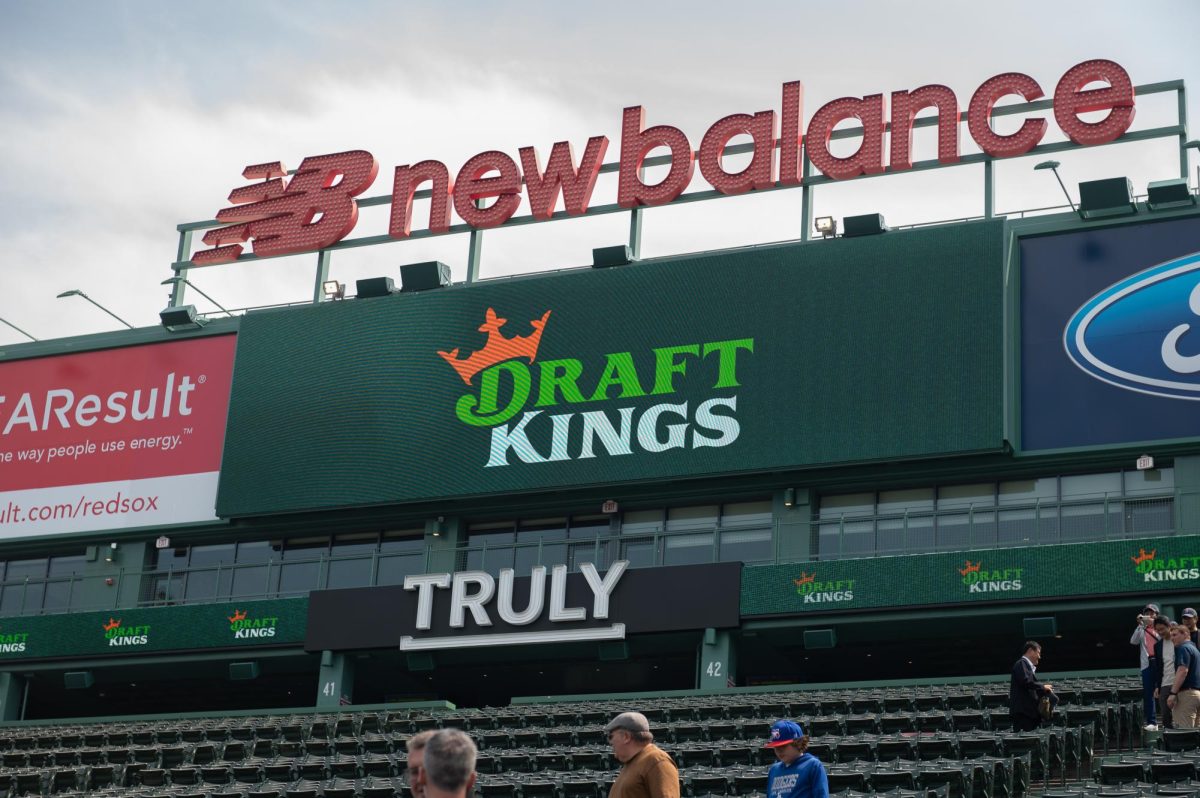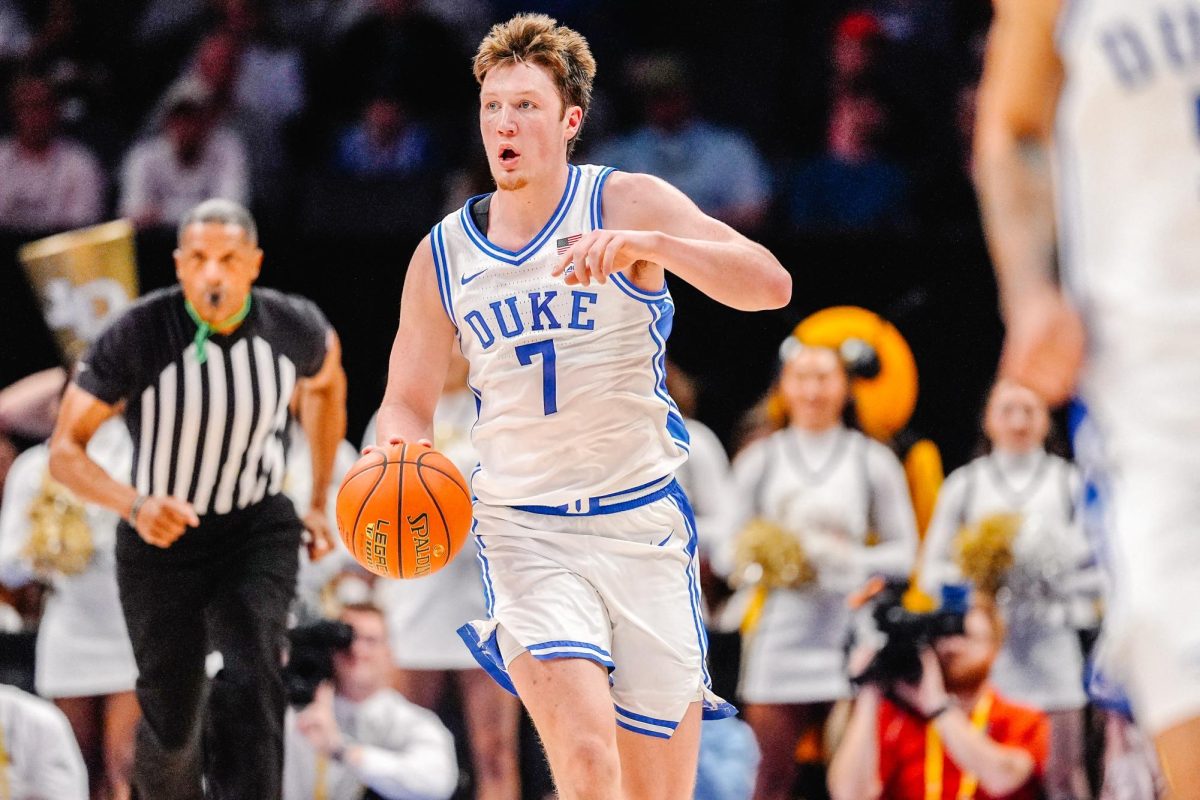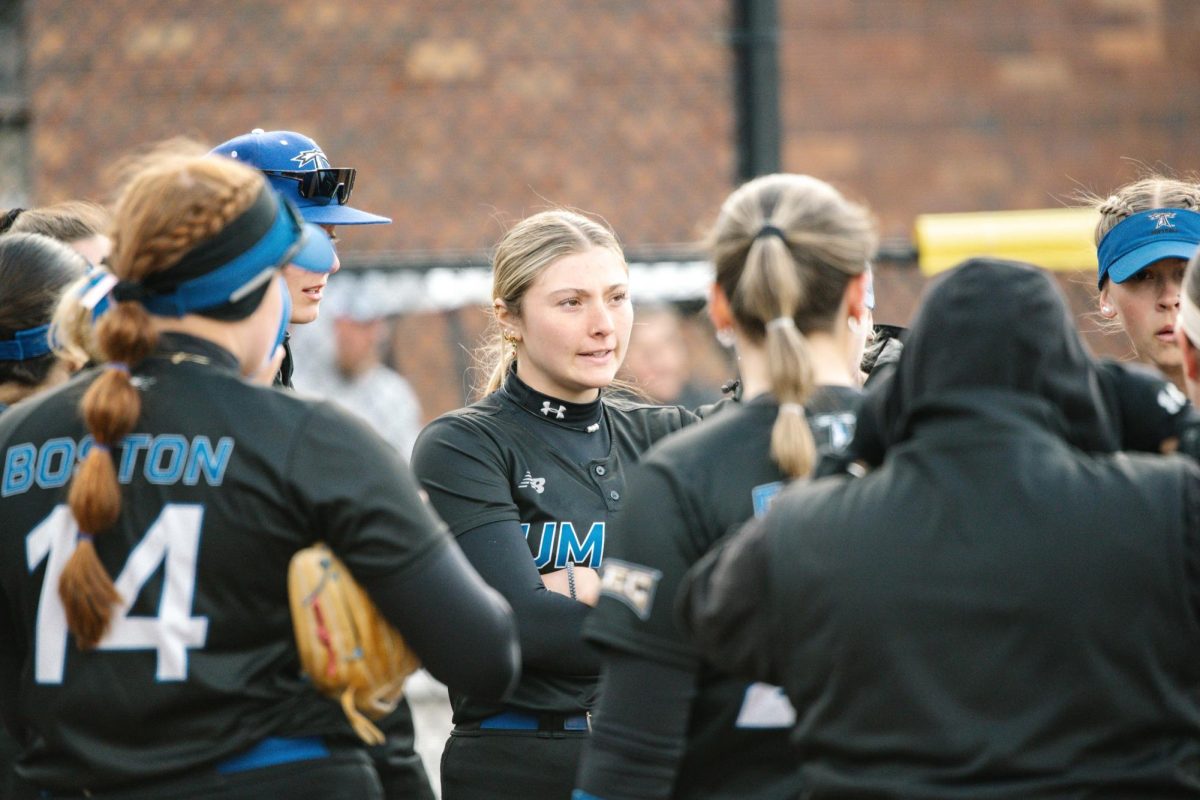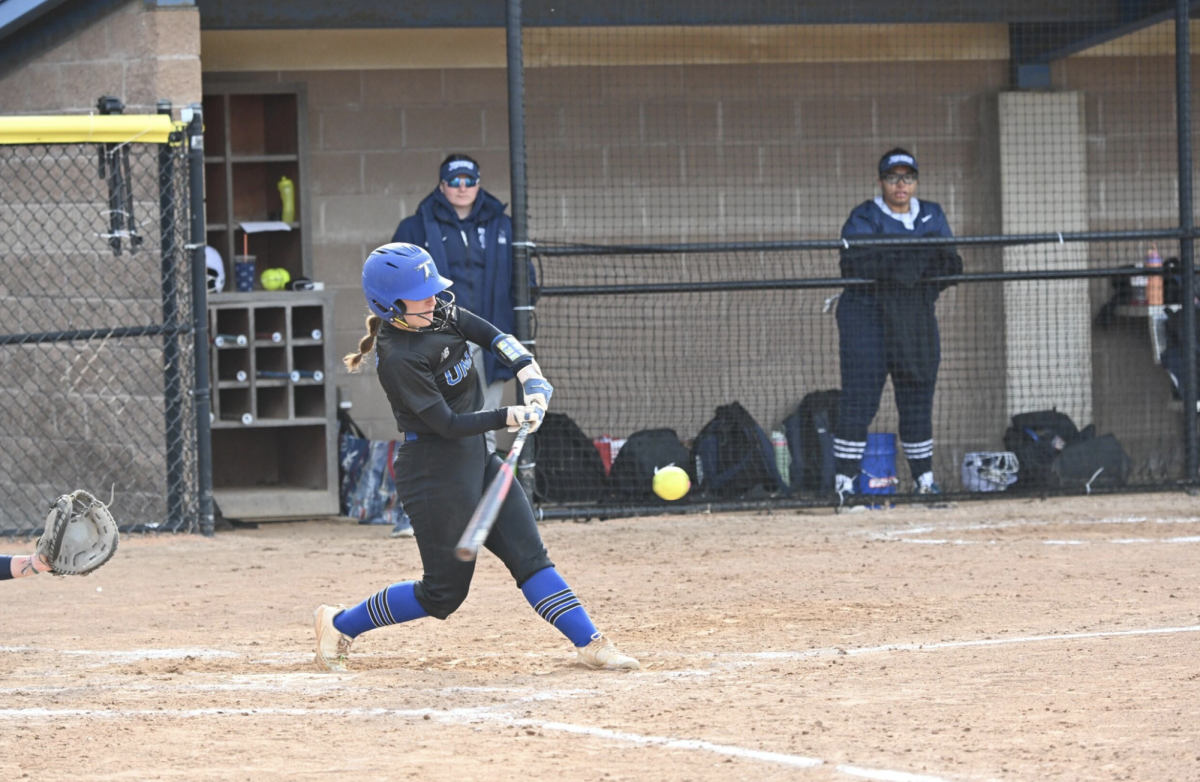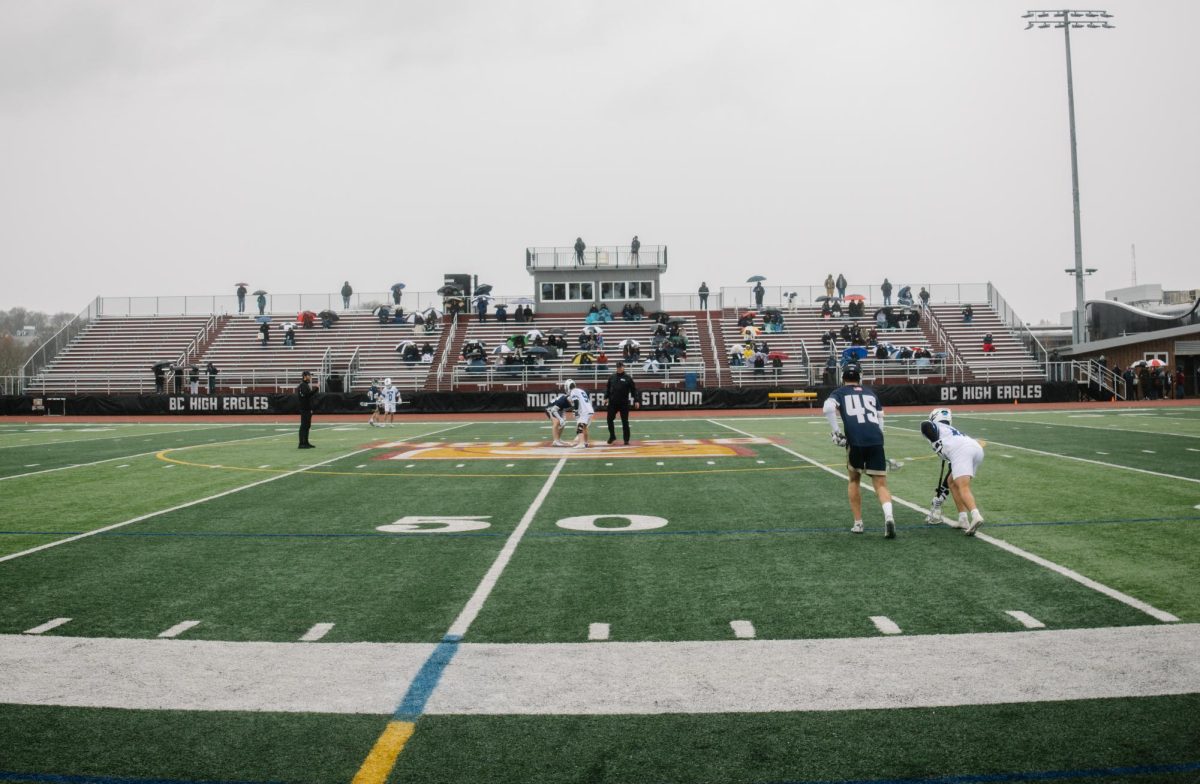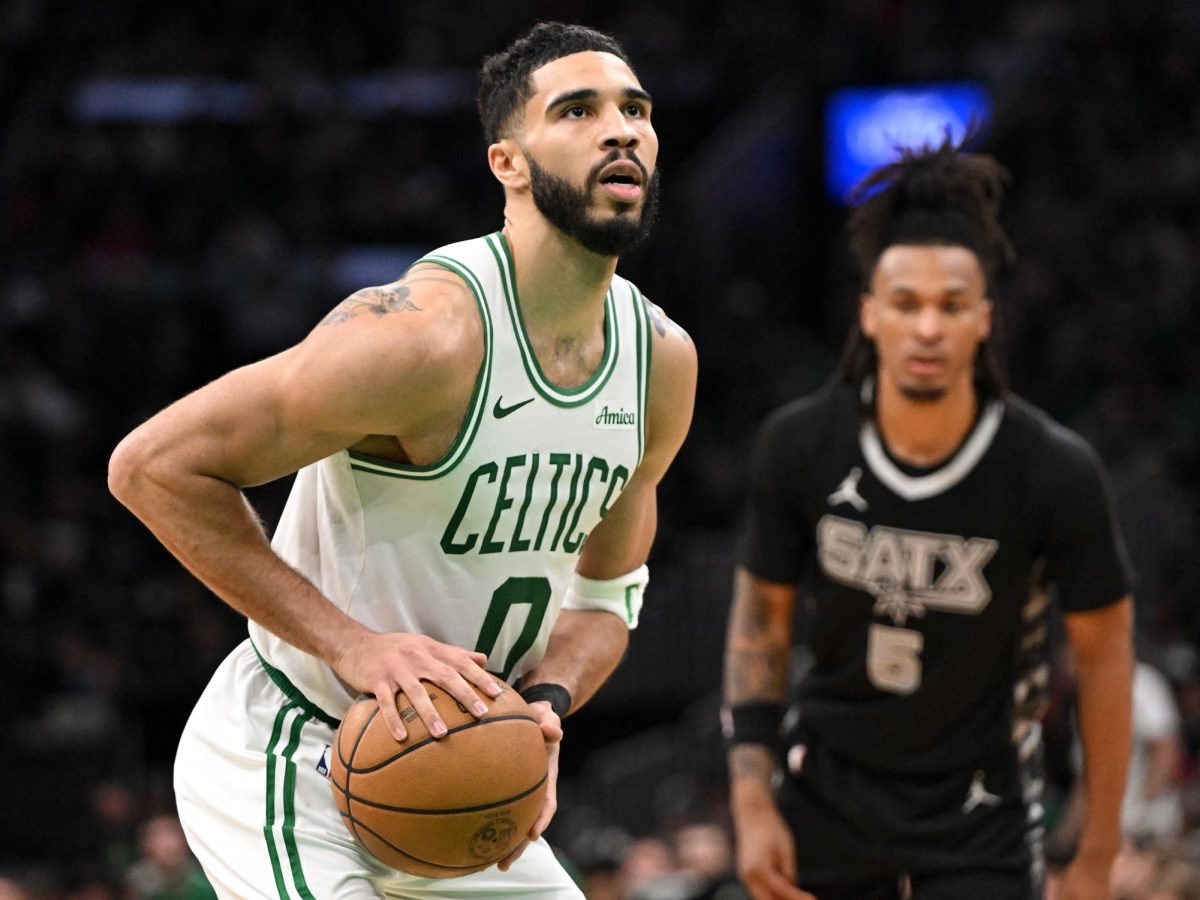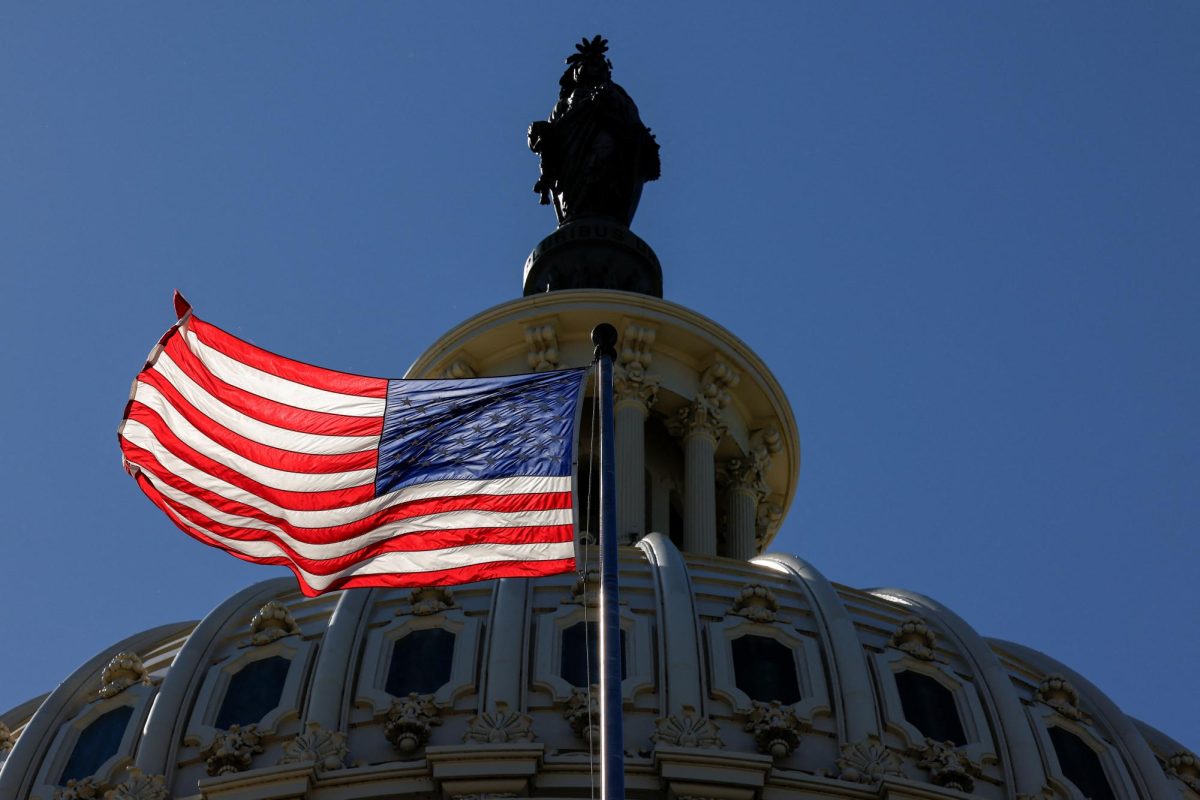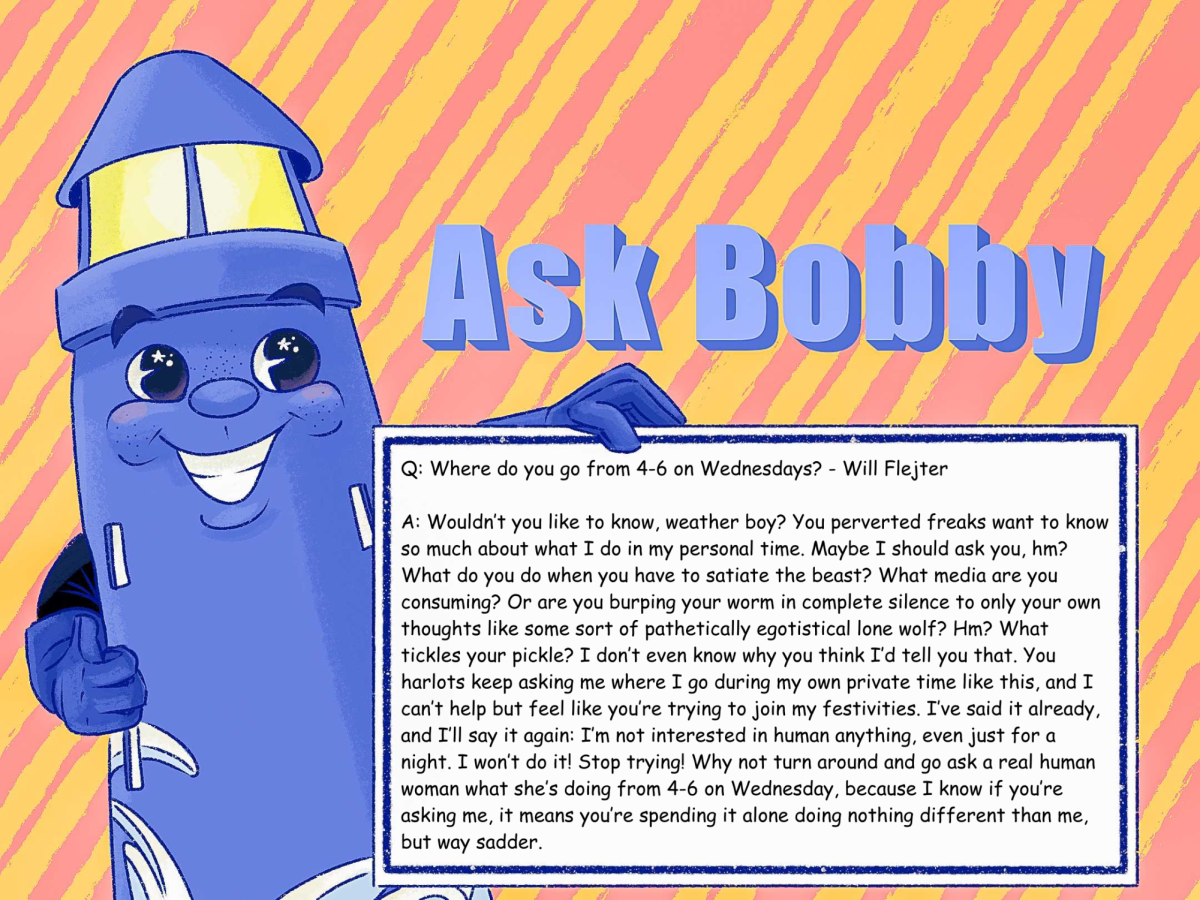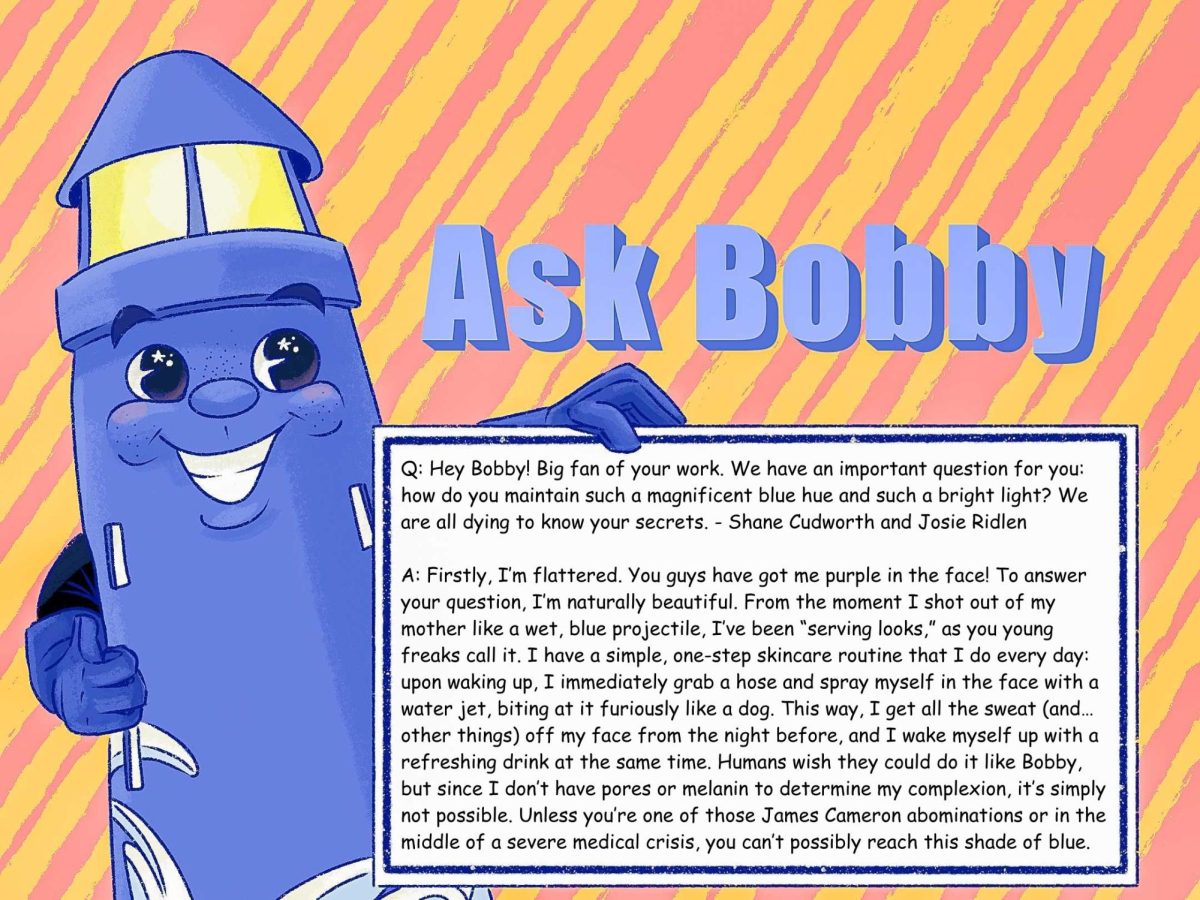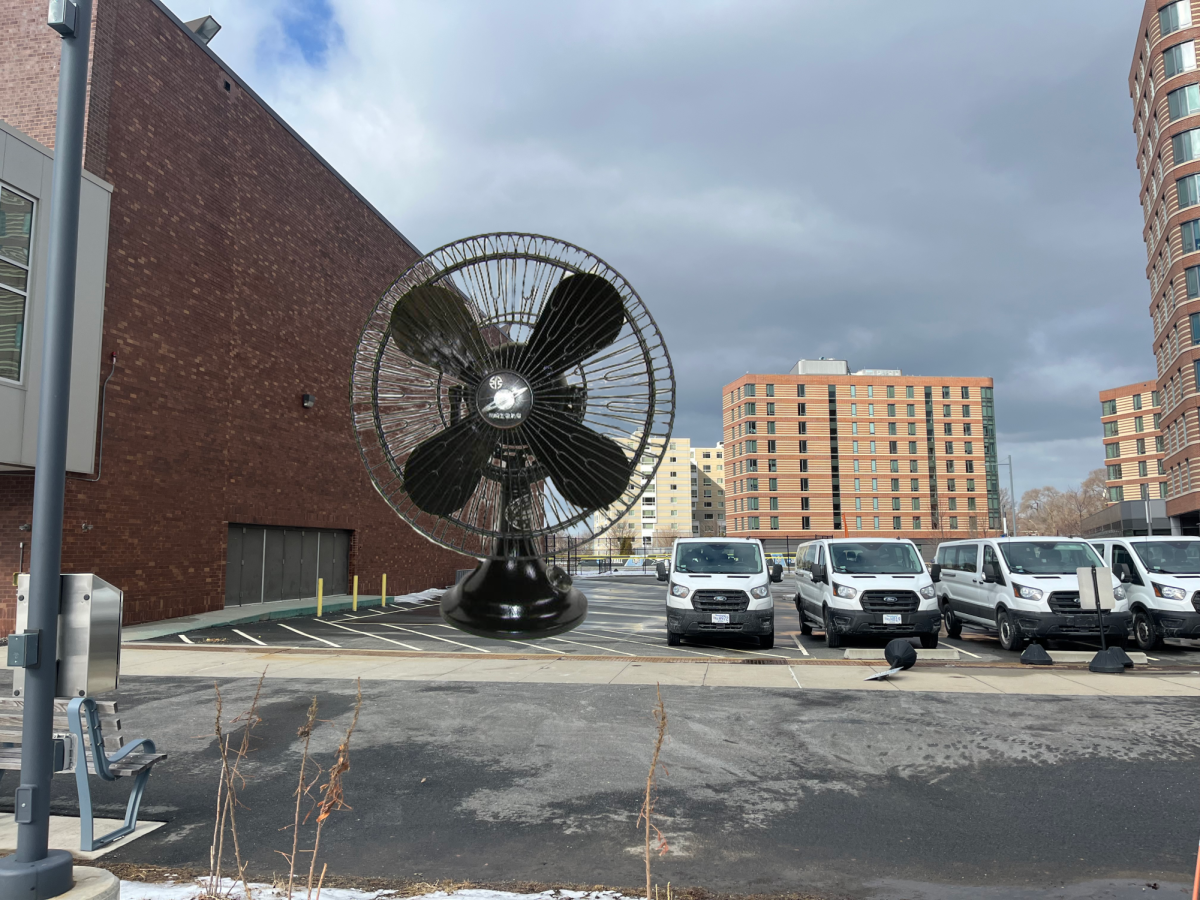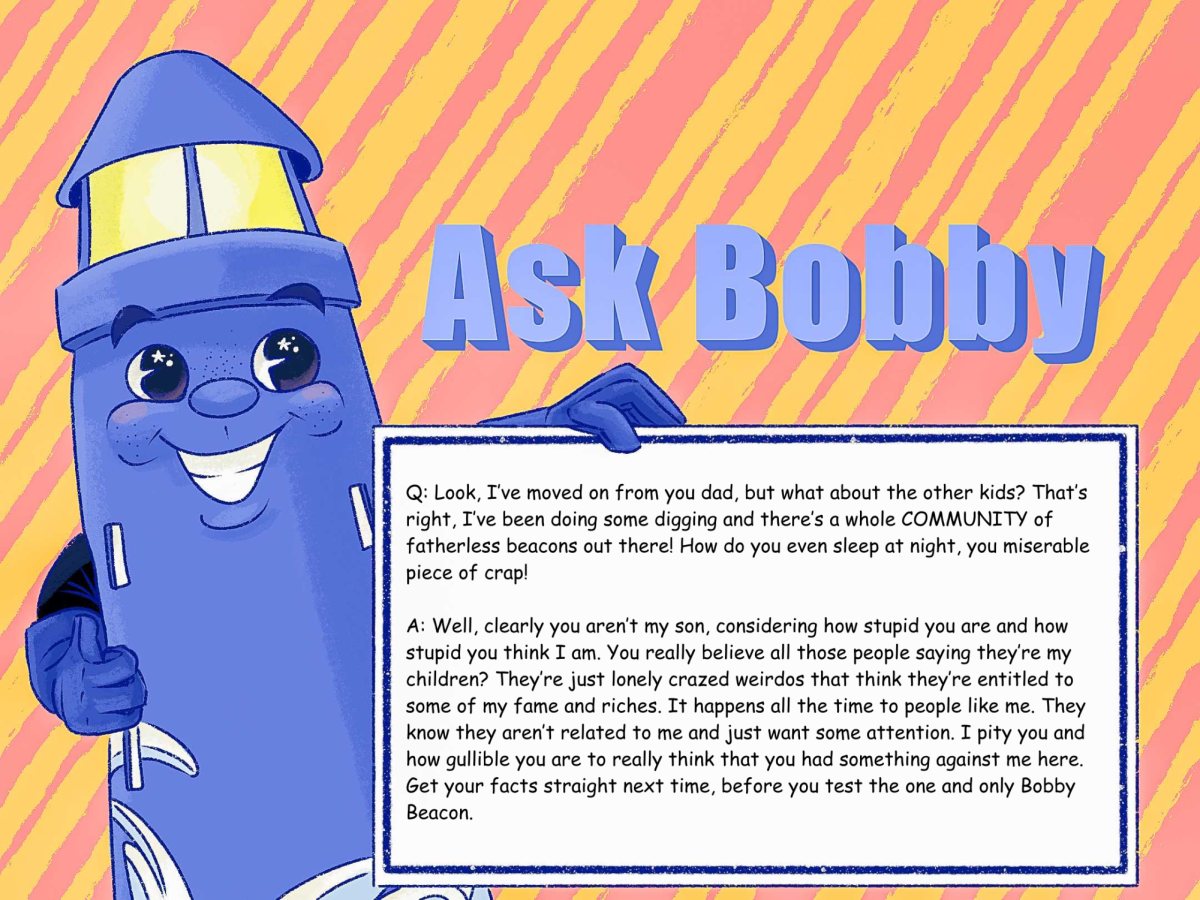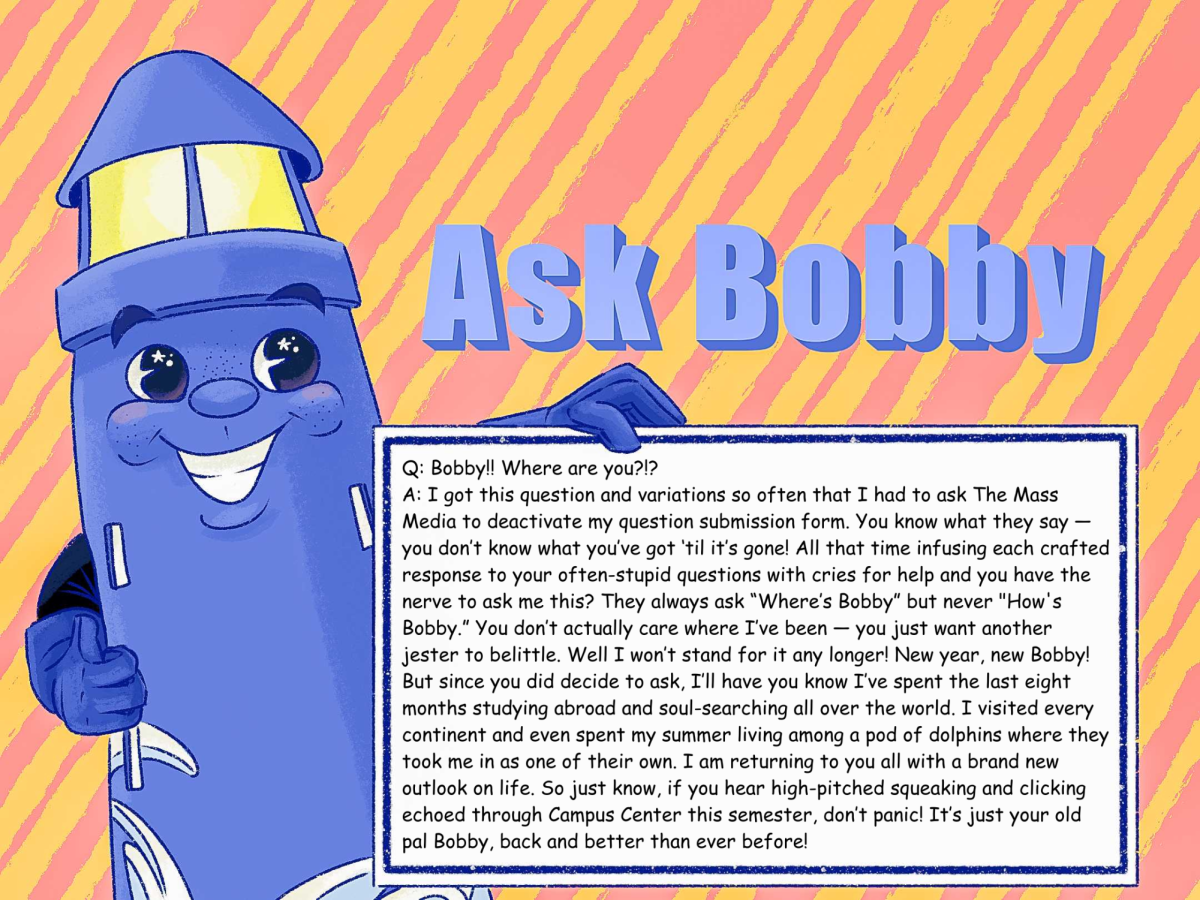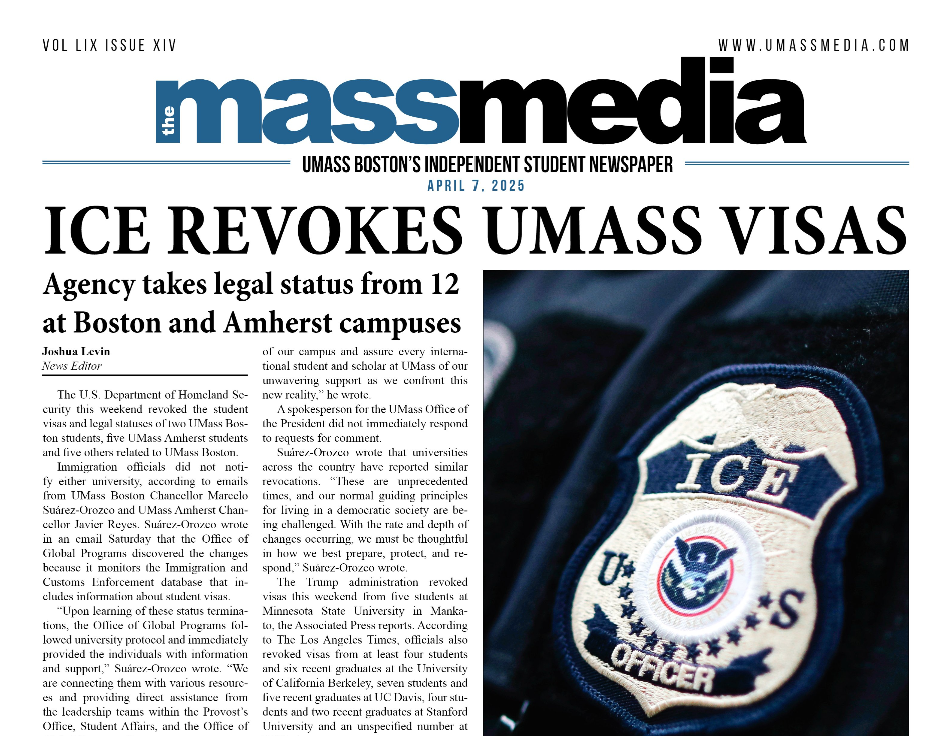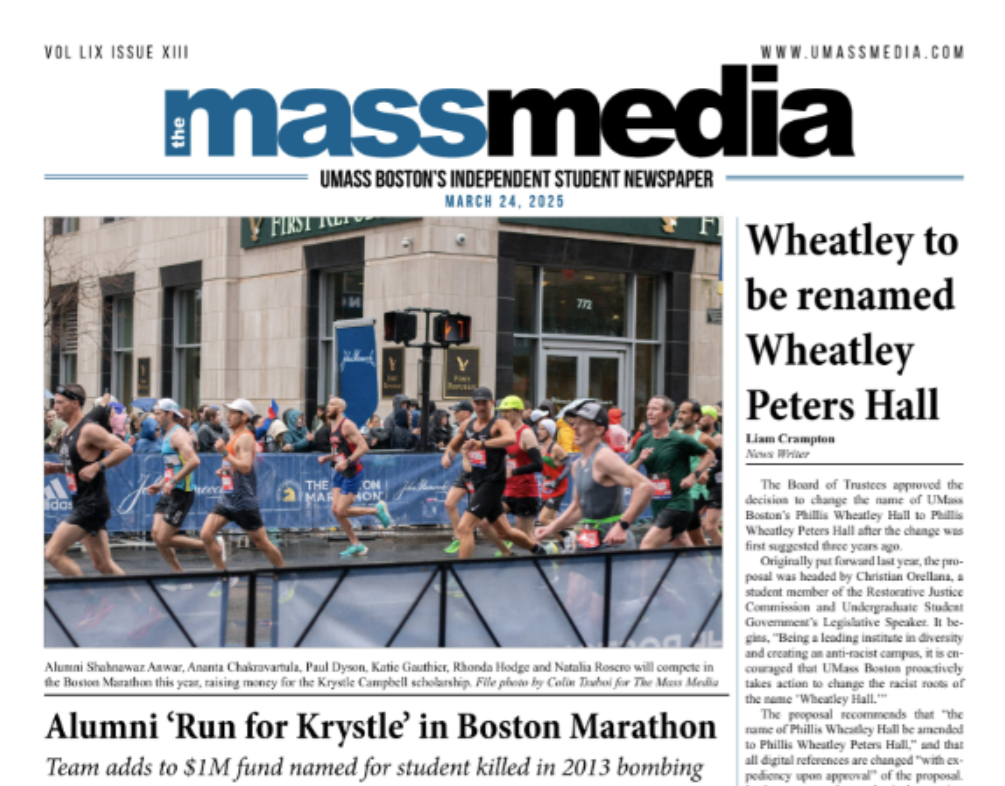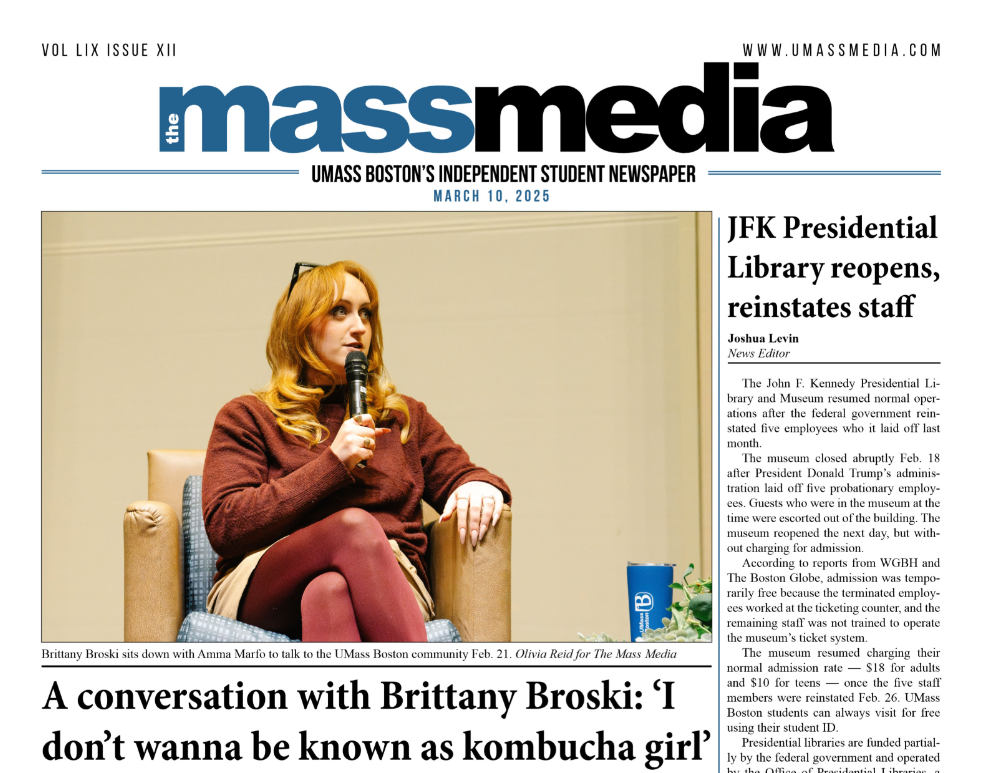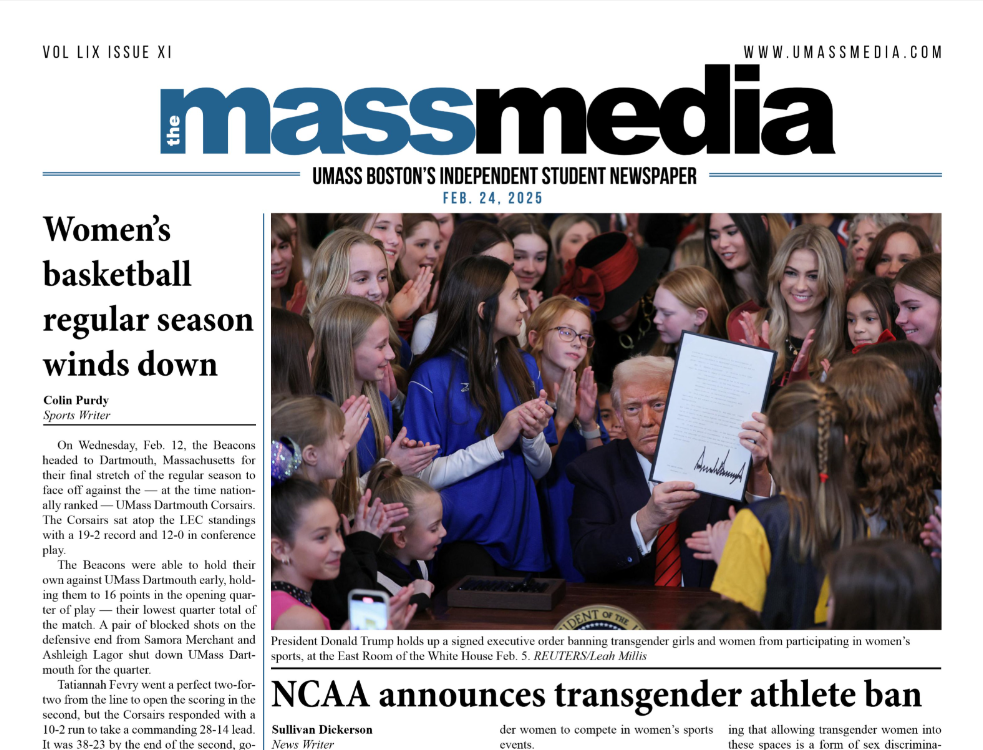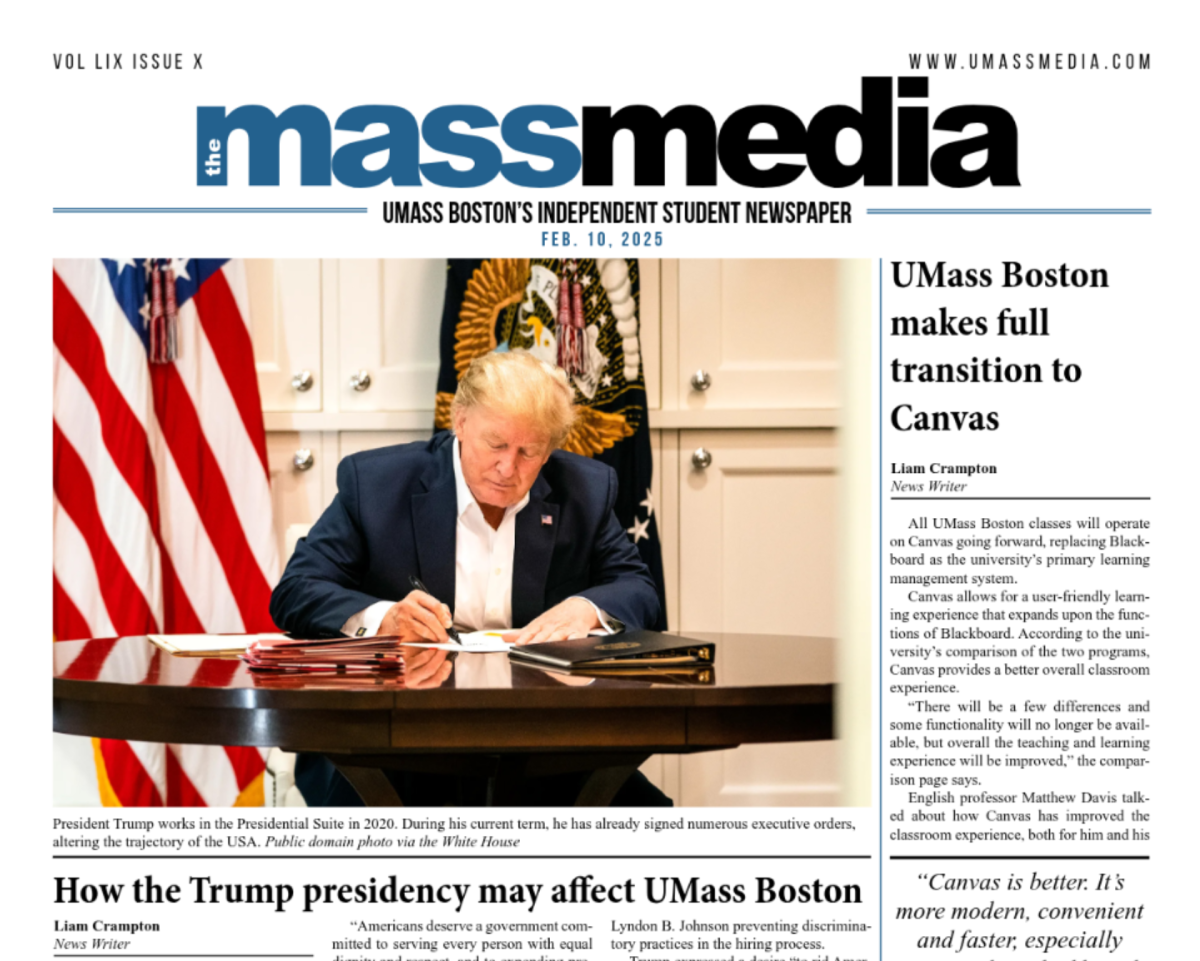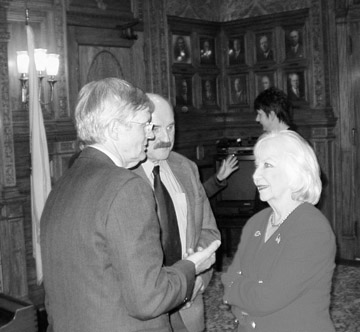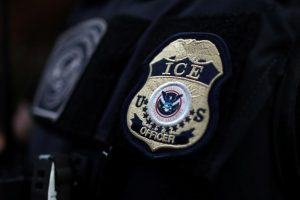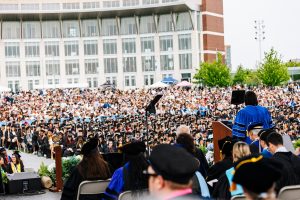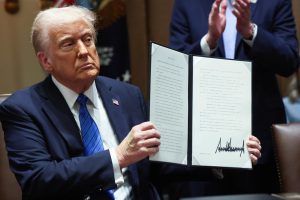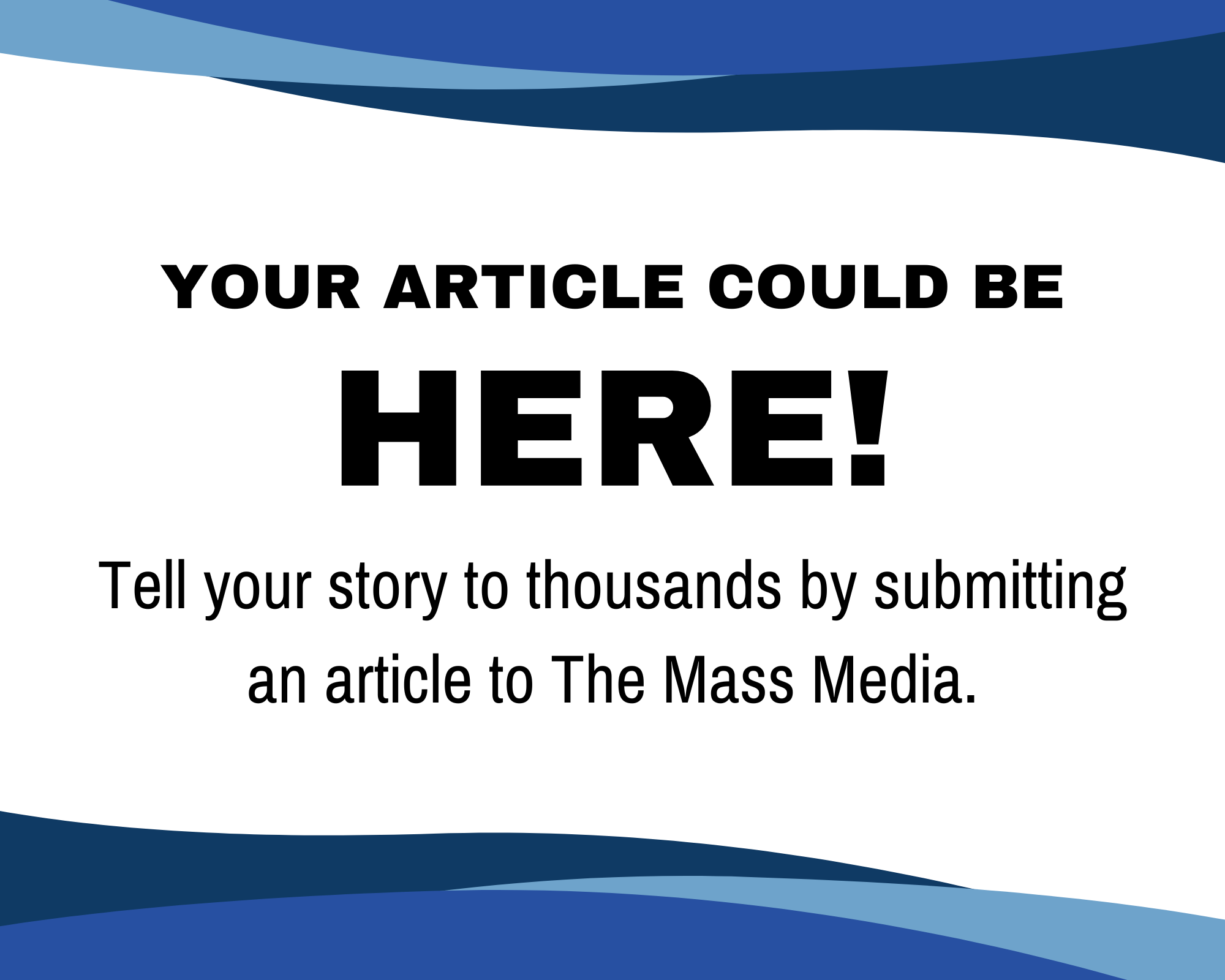Alumni Outreach Grabs Senate President
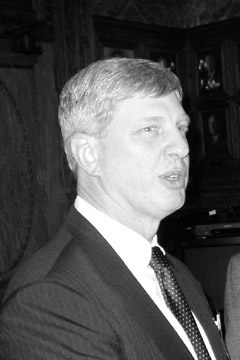
UMass President Wilson called UMass the “indispensable university.”
January 29, 2004
Remodeled during William M. Bulger’s tenure as Senate President, the room had chandeliers suspended from the high ceiling, which added to the golden glow, an aura that enveloped those who entered for the first time.
Not too bad for a UMass Boston grad.
That UMass Boston grad is current senate president Robert E. Travaglini, a Democrat representing parts of Boston, Revere, Winthrop, and Cambridge.
It was made official when, at a reception at his office several weeks ago, UMass Interim President Jack M. Wilson and Chancellor Jo Ann Gora presented Travaglini with a degree from UMass Boston before various alumni who work at the State House and UMass administrators.
“It was a moving presentation,” Travaglini said. “It was something that I had no idea they were going to do, but I was extremely grateful that they did.”
Travaglini graduated from Boston State College in 1974, eight years before it would merge with the University of Massachusetts.
“People laugh or they don’t believe to the degree appropriate that the best times of my life were four years of high school and four years of college,” he said. “They were memorable.”
While in high school, his father passed away and the family’s options were limited financially for college. “And as it turned out for me, Boston State was the perfect place for me to continue my education, build on my foundation, to enhance my friendships and relationships, and to prepare myself for the future,” he said.
Travaglini, a political science major, went to school at the time of the Vietnam War, a time when there were protests, bomb threats, and student unrest, he says. “A whole host of conditions that aren’t as prevalent today as they were in the past. There was a lot of distraction, constant disruption. You tried to stay focused on getting a good education.”
He remembers the teachers: “These people were extremely knowledgeable. They had a true understanding about the real nuts and bolts of politics and elective office and public service.” And he remembers the classes: International Relations-“That was one of the harder ones.”
“Overall, it was a wonderful experience for me. It allowed me to acquire a great appreciation for the whole institution,” he said. “I never dreamed I was going to become senate president, but now that I’m here, and occasionally I have the opportunity to pause and reflect, you think back on people and places and events that were instrumental in the development of your character. And if you can be helpful to them in return, you should be.”
With alumni, “There’s constant outreach and communication,” he said. “You know what’s nice? I had no idea that so many people graduated from Boston State. As soon as I became senate president, wherever I go, whatever event I attend, almost three or four times a week somebody would say to me, ‘Boston State ’71,’ ‘Boston State ’75,’ ‘Boston State ’78,’ ‘Boston State ’69.'”
When asked what else could be done to reach out to alumni, Travaglini responded enthusiastically. ” I love that-that clip that I saw that night was magnificent,” he said, referring to a ten-minute DVD that was shown to the small crowd that had gathered several weeks before. The piece was narrated by 1970 Boston State grad and current WBZ reporter Dan Rea, and featured some of those present that night: House Majority Leader Lida Harkins, and Travaglini himself, as well as other UMass Boston graduates and professors.
“They gotta do more of that,” he said. “There are so many success stories that you can highlight, that people can identify with.”
His communications director, Anne Dufresne, interjected, saying that Travaglini had long said the UMass story was an untold one.
Travaglini agreed. “It’s a success story that hasn’t been packaged properly, that hasn’t been promoted to the degree necessary.”
But that might be one of the many things that’s now being done differently at UMass Boston.
Nestled on the second floor of the Quinn Administration building, inside the Institutional Advancement offices, sits the Office of Alumni, Family, and Constituent Relations, currently headed by Diane Richardson. An alumna of UMass Boston herself, she earned a B.A. in Psychology in 1985 and returned last November to take over as an assistant vice chancellor.
“What we’re trying to do is re-engage the alumni. And not just alumni. It’s alumni, family, and constituents-which is, families of the students, retired faculty, retired staff,” she said. “We’re trying to really broaden it into three different categories, and re-engage all of those people back with the university.”
Numerous events are in the planning stages, or taking place. During the first week of school, Chancellor Jo Ann Gora will be hosting an alumni breakfast for those who work in the downtown Boston area. Another breakfast is scheduled for mid-February, targeting those in the medical field.
“We also have in the works a reunion coming up-the first reunion to be held in the new Campus Center, the fiftieth reunion of the Class of 1954,” of Boston Teacher’s College, she said.
“And that’s what we wanted, too, is to bridge the two different schools, yet still honor where they studied: Boston State College and Boston Teacher’s College,” she said. By having the reunion at the Campus Center, “That’s the first step in the right direction.”
The Campus Center will become the new home, not just for other Quinn operations like the bookstore, the Registrar’s Office, and the Admissions Office, but also for the Office of Alumni Relations, in a bid to increase its visibility.
Richardson has plans for monthly meet-and-greets for retired staff and alumni, and maybe students as well, where they can “find out what the alumni association is all about, so that when they go to graduate, it’s just a natural step that they want to get involved, stay involved with the university.”
Students will also start receiving the UMass Boston alumni magazine, published three times a year. With the help of Computing Services, the website has been cleaned up and has a current calendar of events. The office is in the process of forming an Alumni Board of Directors. And when the first-year orientations come around in the summertime, the alumni office will be involved in that, too.
“There’s so many opportunities, so many roads and avenues that we can turn and go down, that it’s just very exciting, not only for me, but it’s exciting for the alumni community,” she said, later adding, “It’s a different vision, and a much more engaging one. It’s going to involve more alumni, and bring them back to the university.”
Back at the State House, Senator Travaglini talked of the pride he feels in receiving the degree. “It’s a recognition that I’m truly part of the UMass family, and I’m a product of public higher education here in the Commonwealth of Massachusetts,” he said. “And there are hundreds of success stories that you can point to, and I just happen to be a small part of that.”


